Mar 2017 1st Edition
Mar 2017 1st Edition Estelle Greeff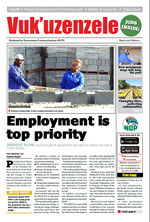
Translations
African Union Handbook launched
African Union Handbook launched lebangThe African Union Commissioner (AUC) and New Zealand recently launched the 2017 edition of the African Union Handbook.
The African Union Handbook was first launched in 2014 as part of an ongoing collaboration between the AUC and the Republic of New Zealand.
The African Union Handbook aims to provide updated information to Member States and the public at large about the purpose, structure and key facts about the AU organisation.
The African Union Handbook 2017 is available from the Directorate of Information and Communications in the AU Commission; and a PDF version can be downloaded from the African Union (www.au.int) and New Zealand Ministry of Foreign Affairs and Trade (www.mfat.govt.nz) websites.
Bringing justice to the people
Bringing justice to the people andileHighlights of the State of the Nation Address
The R1 billion investment in a state-of-the-art High Court in Limpopo will go a long way to help communities to access justice.
The Department of Justice and Constitutional Development (DOJ&CD) has opened Limpopo’s first state-of-the-art High Court.
Previously, residents would have to travel as far as Pretoria to get legal assistance.
The department aims to build two new courts a year to reduce the shortage of court infrastructure in many parts of the country and increase access to justice.
The newly built courts have special facilities for women, children, the elderly and persons with disabilities. 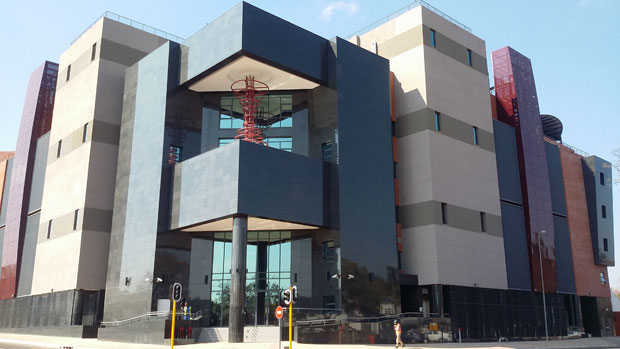
Court Manager Jacky Shibodze said she is humbled to be the court manager of the Limpopo High Court.
“I would like to take this opportunity to urge the community to love and protect the court and to handle all facilities with care.”
The Limpopo Division of the High Court of South Africa is a superior court of law that has general jurisdiction over the Limpopo province.
Services offered at the Limpopo High Court:
Office of the Family Advocate - The Family Advocate assists the parties to reach an agreement on disputed issues including custody, access and guardianship of children. If parents are unable to reach an agreement, the Family Advocate evaluates the parties’ circumstances in light of the best interests of the child and makes a recommendation to the Court with regard to custody, access or guardianship.
Master of the High Court - The Master of the High Court serves the public in respect of deceased estates, liquidations (insolvent estates), registration of trusts, tutors and curators, as well as administration of the guardian’s fund (on behalf of minors and mentally challenged persons).
Legal Aid South Africa - Legal Aid South Africa enables those people who cannot afford to pay for legal fees to be assisted with free legal representation.
The Sheriff of the court -The Sheriff is an impartial and independent official of the Court appointed by the Minister of Justice and Constitutional Development who must serve or execute all documents issued by our courts. These include summonses notices, warrants and court orders.
*Emmah Maluleke works for the Department of Justice and Constitutional Development.
“The Year of Oliver Reginald Tambo: Unity in Action Together Moving South Africa Forward.”
Changing lives, protecting communities
Changing lives, protecting communities lebangThe Working on Fire programme is an initiative of the Department of Environmental Affairs in changing lives, particularly in poor communities.
In 2003 the department launched the programme to create jobs and develop skills among young people from marginalised communities. Many lives have been changed since then.
The Working on Fire programme has 200 bases and 5 000 firefighters across South Africa. The programme has 60 percent male and 40 percent female firefighters and people living with disabilities make up four percent of the participants.
Once recruited, participants are sent to Nelspruit on a 25-day training programme for induction and an advanced veld and forest firefighting course.
They are trained as firefighters to help fight veld and forest fires.
Whenever there are vacancies, adverts for these jobs are placed in public spaces in the areas where these teams operate.
To be considered for the programme people must:
- Be South African citizens.
- Successfully pass physical fitness tests during recruitment.
- Live in communities where the adverts are placed.
Correction
Correction lebang
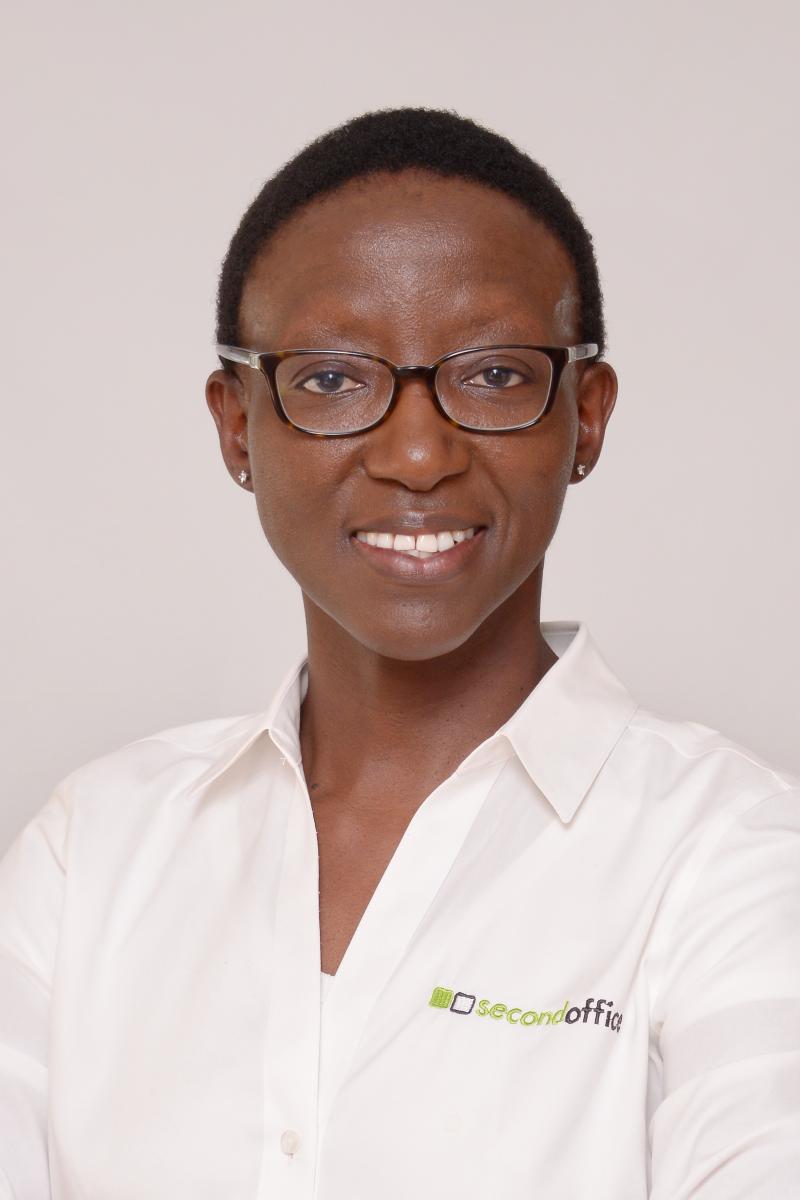 In February 2017 Edition 2 of Vuk’uzenzele a comment on the State of the Nation Address was erroneously attributed to Ms Sibongile Booi (pictured). Ms Booi’s correct comment can be viewed on: www.vukuzenzele.gov.za or on the Vuk mobile App. We apologise for any inconvenience caused.
In February 2017 Edition 2 of Vuk’uzenzele a comment on the State of the Nation Address was erroneously attributed to Ms Sibongile Booi (pictured). Ms Booi’s correct comment can be viewed on: www.vukuzenzele.gov.za or on the Vuk mobile App. We apologise for any inconvenience caused.
Employment is top priority
Employment is top priority JoyPresident Jacob Zuma delivered his State of the National Address (SoNA) at a time when the economy is not growing fast enough to create much-needed jobs. Despite this, the President delivered a speech that gave a positive outlook on the country’s future.
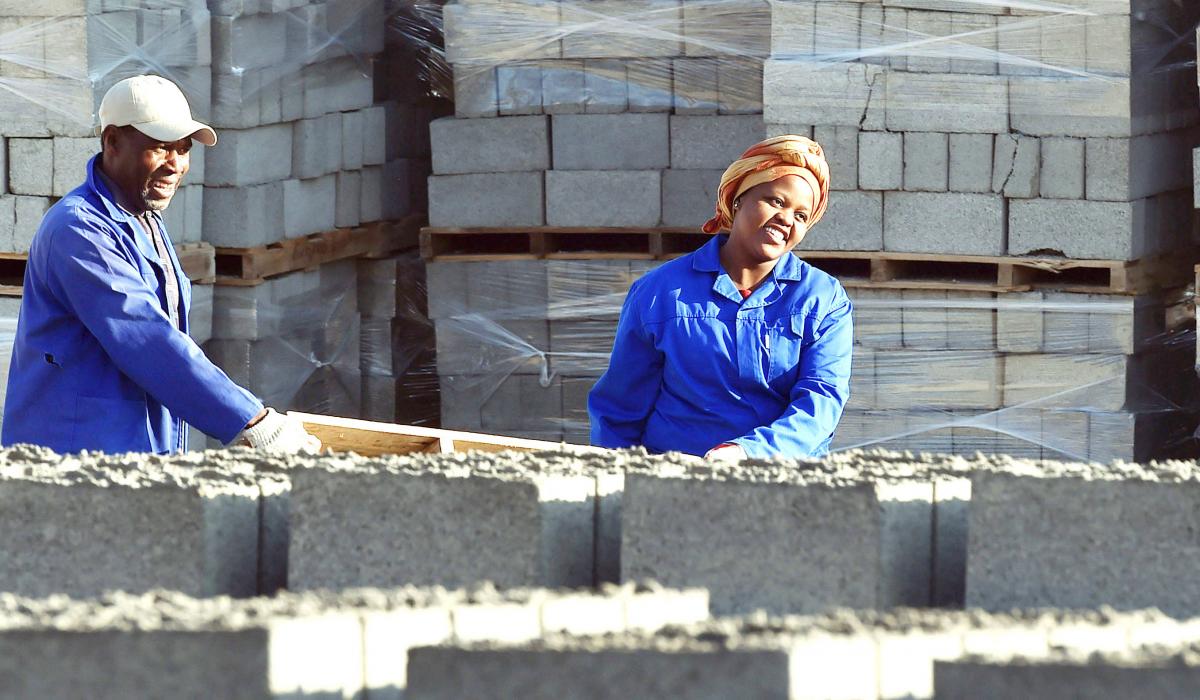 He outlined a number of proposals aimed at boosting employment including:
He outlined a number of proposals aimed at boosting employment including:
- The establishment of an Invest SA One-Stop Shop.
- Taking advantage of tourism as a job driver.
- Scaling up the Expanded Public Works Programme (EPWP).
- Using public infrastructure as a way to create work opportunities.
Government will use the Nine-Point Plan announced in the 2015 SoNA to help speed up growth and employment.
The key pillars of the plan include, among other things, resolving the energy challenge, promoting agriculture and agro-processing, advancing beneficiation, and encouraging private sector investment.
President Zuma said government had also identified tourism as a key job driver.
“We are thus pleased that our tourist arrival numbers for the period January to November 2016 increased to nine million, an increase of just over one million arrivals from 2015. This represents a 13 percent growth in tourist arrivals,” he said.
In addition, government runs effective poverty alleviation programmes such as the EPWP.
“The EPWP has, since 2014, created more than two million work opportunities towards the attainment of the target of six million work opportunities by the end of March 2019. Of the work opportunities created, more than one million have been taken up by the youth.”
President Zuma noted that during 2015/2016, more than 61 000 work opportunities were created through Environmental Programmes such as Working for Water, Working for Wetlands, Working on Fire and Working for Ecosystems. More than 60 percent of the beneficiaries were young people.
This has led to job creation in the Northern Cape and diversification of the economy through the creation of artisan and maintenance jobs, and the promotion of science as a career of choice.
On road infrastructure, the South African National Roads Agency (Sanral) has started the planning phase
of the R4.5 billion Moloto road upgrade.
In 2014, government launched the Operation Phakisa Big Fast results methodology in the ocean economy, health, education and mining sectors. The purpose was to find a few key projects to unlock growth in implementing the National Development Plan.
Radical economic transformation
Meanwhile President Jacob Zuma said radical economic transformation will be at the centre of government's priorities for 2017.
“Today we are beginning a new chapter of radical transformation. The state will play a role in the economy to drive that transformation," the President said.
He said the time had come for the state to move a step further to ensure an overhaul of the economic structure of the country for the benefit of all citizens.
“The gap between the annual average household incomes of African-headed households and their white counterparts remains shockingly huge. White households earn at least five times more than black households, according to Statistics SA,” President Zuma said.
Did you know?
Government spends R500 billion a year buying goods and services. Added to this, government also has a R900 billion infrastructure budget.
Highlights of the State of the Nation Address
Highlights of the State of the Nation Address Joy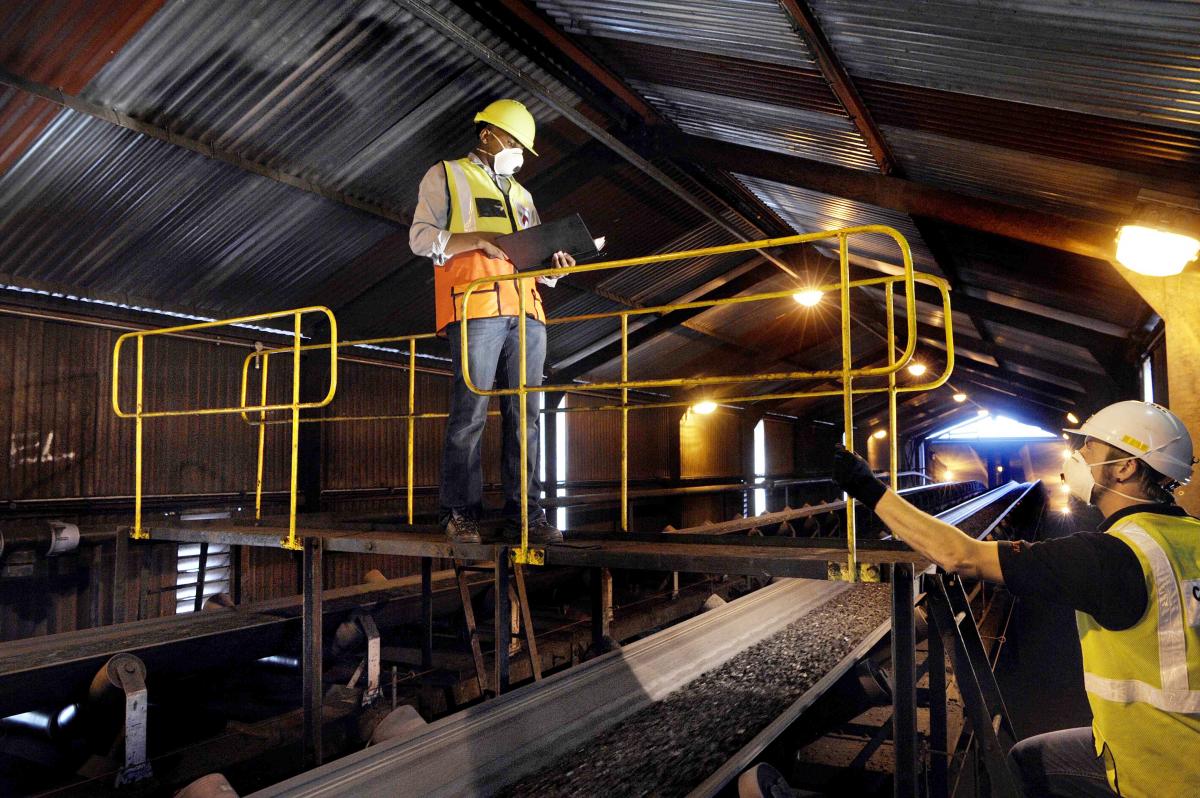 President Jacob Zuma delivered the State of the Nation Address (SoNA) to Parliament in Cape Town on Thursday, 9 February 2017.
President Jacob Zuma delivered the State of the Nation Address (SoNA) to Parliament in Cape Town on Thursday, 9 February 2017.
The President mentioned that in this 23rd year of freedom, government’s mission remained the quest for a united, democratic, non-sexist, non-racial and prosperous South Africa.
“Guided by the National Development Plan (NDP), we are building a South Africa that must be free from poverty, inequality and unemployment,” he said.
He said while the global economic environment remained uncertain, indications were that the country had entered a period of recovery, with an anticipated economic growth rate of 1.3 percent in 2017 following an estimated 0.5 percent growth rate in 2016.
The President acknowledged that the economy was still not growing fast enough to create much-needed jobs, especially for the youth.
Job creation
The focus areas of the Nine-Point Plan to reignite the economy to be able to create much-needed jobs include industrialisation, mining and beneficiation, agriculture and agro-processing, energy, small, medium and micro enterprises (SMMEs), managing workplace conflict, attracting investments growing the oceans economy and tourism.
Cross-cutting areas such as science and technology, water and sanitation infrastructure, transport infrastructure and broadband roll-out have also been added.
Boosting economic growth
The interaction between government, business and labour, known as the CEO Initiative, has been able to address some domestic challenges.
As a result, the country successfully avoided credit rating downgrades, which would have had a significant impact on the economy.
Stable labour market
South Africa’s labour market environment is showing signs of stability, owing to cooperation by social partners.
Unity in action was demonstrated following the conclusion of the agreement on the national minimum wage and on measures to stabilise labour relations.
Resolving the energy challenge
By February 2017, nearly seven million households had been connected to the grid and now have electricity.
The successful execution of Eskom’s Build and Maintenance programmes helped to ensure stability and an end to load-shedding. Work is continuing to ensure energy security. Renewable energy forms an important part of the energy mix, which also includes electricity generation from gas, nuclear, solar, wind, hydro and coal.
Government is committed to the overall Independent Power Producer Programme and is expanding the programme to other sources of energy, including coal and gas, in addition to renewable energy.
Eskom will sign the outstanding power purchase agreements for renewable energy in line with the procured rounds.
Water and sanitation
Government is working hard to ensure reliable bulk-water supply in the various areas of the country to support economic growth while increasing access to vulnerable and rural municipalities.
In an effort to curb high water losses, which in some municipalities far exceed the national average which is at 37 percent, about 10 000 unemployed youth are being trained as plumbers, artisans and water agents. More will be recruited this year to reach the total of 15 000. Municipalities have been urged to support the War on Leaks Programme.
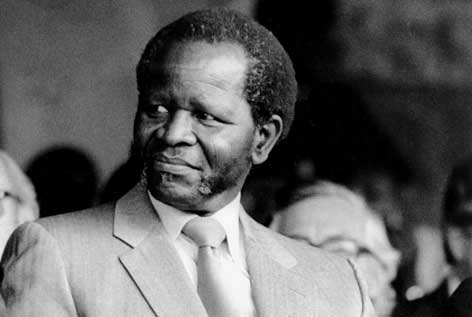 The Year of Oliver Reginald Tambo
The Year of Oliver Reginald Tambo
“An illustrious son of our country, President Oliver Reginald Tambo, would have turned 100 years old this year, had he lived.
“This selfless patriot dedicated his adult life to a tireless pursuit of the liberation of our country and its people. He left a lasting legacy for all South Africans.
“In his honour, we have declared the year 2017, the Year of Oliver Reginald Tambo. It is the year of unity in action by all South Africans as we move South Africa forward, together.” – President Jacob Zuma, SoNA, 9 February 2017
Did you know?
Energy
- 7 million – households that have been connected to the grid and now have electricity.
Fast fact
Water and sanitation
- 37 percent – the national average of water losses in some municipalities.
- 10 000 – unemployed youth being trained as plumbers, artisans and water agents.
- 15 000 – the total number to be trained as plumbers, artisans and water agents by end of 2017.
The Moloto Road and a railway line are currently under construction with the purpose of ensuring the safety of road users and also bringing to an end the accidents that claim many lives.
Did you know?
Science
- 8 – African partners supported South Africa to win the bid to host the Square Kilometre Array telescope.
Road infrastructure
The South African National Roads Agency Limited has started with the planning phase of the R4.5 billion project to upgrade the Moloto Road.
The Moloto Road and a railway line are currently under construction for the purpose of ensuring the safety of road users and also bringing to an end the accidents that claim many lives.
During 2016, South Africa signed a cooperation agreement with the People’s Republic of China (PRC) to build the Moloto Rail Development Corridor.
Did you know?
Since its inception in 2011, Asidi has provided water to 617 schools, sanitation to 425 schools and electricity to 307 schools that previously did not have access to these basic amenities.
Fast fact
Education
- 173 – the number of inappropriate school structures that have been eradicated since 2011.
- 895 – new schools that provide a conducive learning environment for children.
- 87 – points achieved by South Africa in mathematics.
- 90 – points achieved by South Africa in science.
School infrastructure
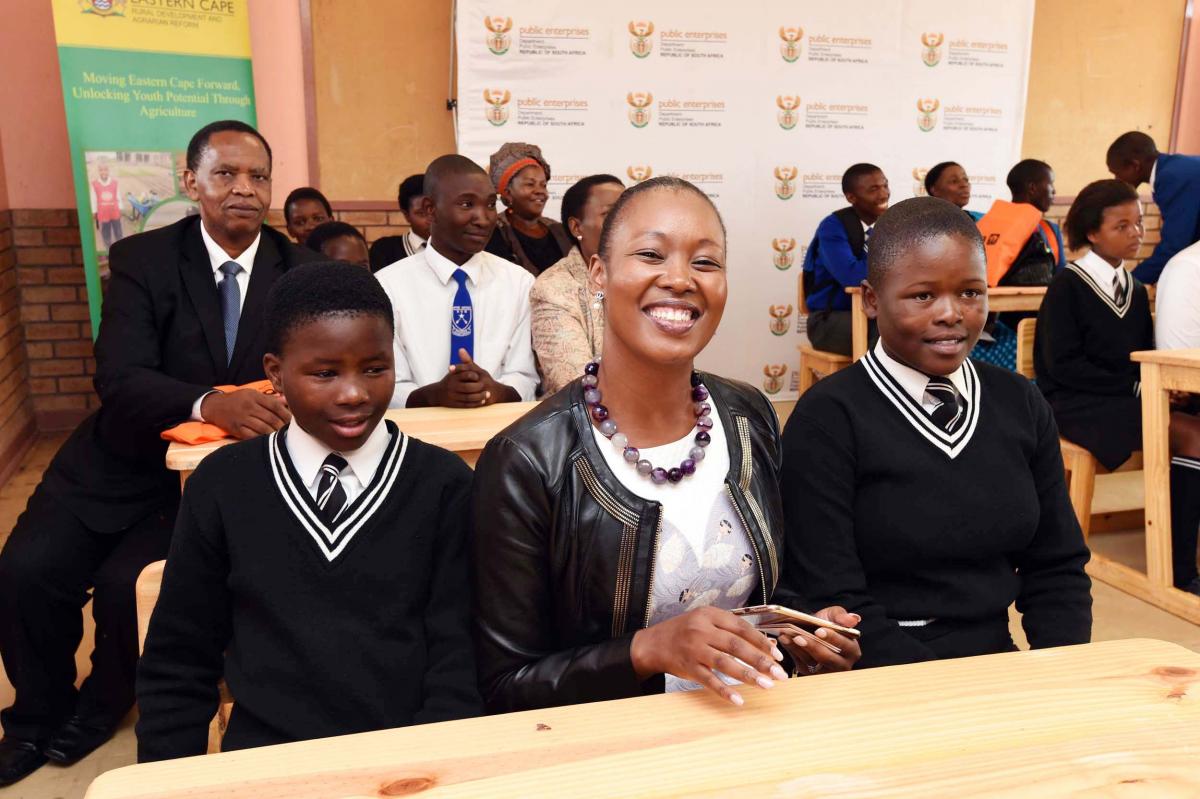 Government continues to build modern schools, and is replacing mud structures and other inappropriate buildings through the Accelerated Schools Infrastructure Delivery Initiative.
Government continues to build modern schools, and is replacing mud structures and other inappropriate buildings through the Accelerated Schools Infrastructure Delivery Initiative.
A total of 173 inappropriate school structures have been eradicated since 2011. In total, 895 new schools now provide a conducive learning environment for school children.
Promoting investment
To promote investment, government has established InvestSA, an investment one-stop shop, nationally and will open provincial centres in KwaZulu-Natal, Gauteng and the Western Cape. Affected government departments have been requested to avoid undue delays and unnecessary red tape, such as the issuing of licences to visas that should make it easy to do business in South Africa.
Educational achievements
The results in the Trends in International Mathematics and Science Study and the Southern and East African Consortium for Monitoring Educational Quality show that the performance of South African learners is improving. Among the participating countries, South Africa has shown the largest improvement of 87 points in mathematics and 90 in science.
Science and technology
Since South Africa, supported by its eight African partners (Botswana, Ghana, Kenya, Madagascar, Mauritius, Mozambique, Namibia and Zambia), won the bid to host the Square Kilometre Array (SKA) telescope, significant progress has been made in building this mega science project and reaping its benefits.
Together with its precursor, the MeerKAT telescope, the SKA project continues to make important contributions to socio-economic development in South Africa.
The Department of Science and Technology is implementing a technology localisation strategy, which has ensured that the R2 billion MeerKAT telescope is constructed with 75 percent local content.
This has led to job creation in the Northern Cape and diversification of the economy through the creation of artisan and maintenance jobs, and the promotion of science as a career of choice.
“The Year of Oliver Reginald Tambo: Unity in Action Together Moving South Africa Forward.”
Operation Phakisa
The Operation Phakisa Big Fast Results Methodology in the ocean economy, health, education and mining sectors – which was launched in 2014 to unlock growth in implementing the NDP – is proceeding well.
The South African Navy (SAN) also participates in the Operation Phakisa project and is preparing to host the government garage concept for all state-owned vessels in Simon’s Town near Cape Town, including the maintenance and repair of government-owned vessels, through the newly established SAN/Armaments Corporation of South Africa/Denel partnership.
Tourism
Government has identified tourism as a key job driver. Tourist arrival numbers for January to November 2016 increased to nine million, an increase of just over a million arrivals from 2015. This represents a 13 percent growth in tourist arrivals.
Poverty-alleviation programmes
Government runs effective poverty alleviation programmes such as the Expanded Public Works Programme (EPWP). The EPWP has since 2014 created more than two million work opportunities and the target is to create six million work opportunities by the end of March 2019. More than a million of the work opportunities have been taken up by the youth.
Many families benefit from social grants, which now reach close to 17 million people, mainly older persons and children.
During the 2015/16 financial year, more than 61 000 work opportunities were created through environmental programmes such as Working for Water, Working for Wetlands, Working on Fire and Working for Ecosystems. More than 60 percent of the beneficiaries were young people.
Fast fact
Inequality
- 5 percent – the ratio of white households earning more than black households.
- 10 percent – the number of the top 100 companies on the Johannesburg Stock Exchange owned by black South Africans.
- 72 percent – the representation of whites at top management level by 2015/16.
- 10 percent – the representation of Africans at top management level by 2015/16.
- 4.5 percent – the representation of coloureds at top management level by 2015/16.
- 8.7 percent – the representation of Indians at top management level by 2015/16.
- 67.6 percent – male representation at top management level by 2015/16.
- 32.4 percent – female representation at top management level by 2015/16.
Fast fact
Aquaculture offers real opportunities for SMMEs
- Globally, aquaculture supplies almost 50 percent of the world’s fish. It is estimated that by 2030, the world will require an additional 50 tonnes of fish, which come mainly from aquaculture.
- To date, 10 projects are in the process in the Eastern Cape, Northern Cape, Western Cape and KwaZulu-Natal with funding secured from the newly-established Aquaculture Development Enhancement Programme.
- More than 500 jobs have been created and committed.
- The sector has realised private sector investment of R338 million with government investment at R106 million.
Did you know?
- 30 000 vessels pass by South Africa’s waters.
- 13 000 vessels dock in South Africa ports.
- 1.2 million tonnes of liquid fuel passes along the coast.
- 300 million tonnes of cargo on foreign owned and crewed vessels is shipped.
- 80 rigs estimated to be in range of the Western Cape.
Social development
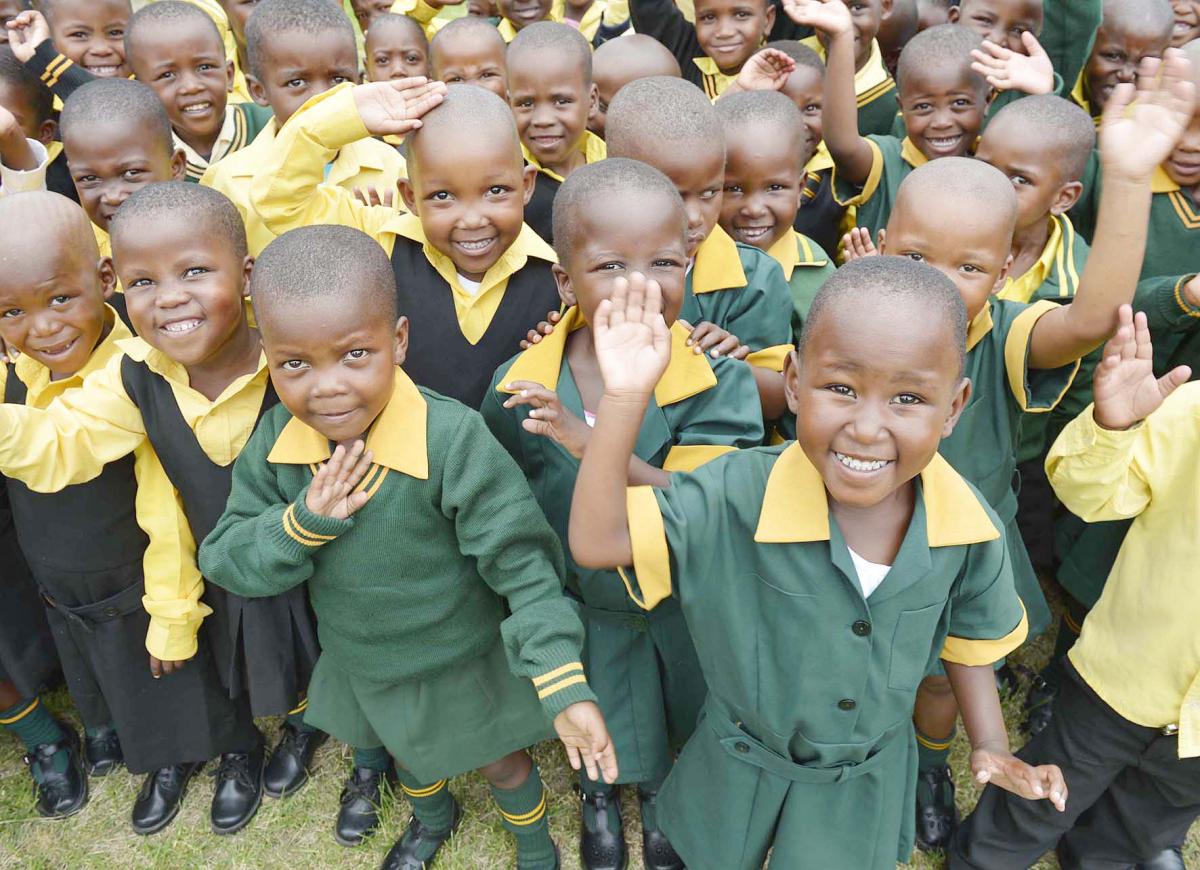 17 million – people receiving social grants, mainly older persons and children.
17 million – people receiving social grants, mainly older persons and children.
Socio-economic transformation
Government has acknowledged the slow pace of transformation in the workplace and the implementation of affirmative action policies, as required by the Employment Equity Act, 1998 (Act 55 of 1998).
In terms of the 2015/16 information submitted to the Employment Equity Commission, the representation of whites at top management level amounted to 72 percent while African representation was at 10 percent. The representation of coloureds stood at 4.5 percent and Indians at 8.7 percent.
At the level of gender at senior management level, males remain dominant at 67.6 percent and females at 32.4 percent.
Government is undertaking a new chapter of radical socio-economic transformation to correct the skewed nature of ownership and leadership patterns which exclude the majority.
This includes legislation, regulations, licensing, budget and procurement as well as Broad-based Black Economic Empowerment charters to influence the behaviour of the private sector and drive transformation.
Procurement
The state spends R500 billion a year buying goods and services, in addition to the R900 billion infrastructure budget, to achieve economic transformation.
New regulations making it compulsory for big contractors to subcontract 30 percent of business to black-owned enterprises have been finalised and were gazetted on 20 January 2017.
Through such regulations and programmes, government will be able to use the state buying power to empower small enterprises and rural and township enterprises, designated groups and to promote local industrial development.
However, two key challenges being faced are the high levels of concentration in the economy, and the collusion and cartels, which squeeze out small players and hamper the entry of young entrepreneurs and black industrialists.
The competition authorities have uncovered the cartels and punished them for breaking the law.
Legislation to criminalise the cartels and collusion came into effect on 1 May 2016 and it carries jail sentences of up to 10 years.
During 2017, the Department of Economic Development will bring legislation to Cabinet that will seek to amend the Competition Act, 1998 (Act 89 of 1998). It will, among others, address the need to have a more inclusive economy and to de-concentrate the high levels of ownership and control in many sectors. The legislation will be tabled for consideration by Parliament.
Housing
Government is actively involved in the property sector and has provided more than four million houses since 1994.
The housing sector in South Africa is valued at approximately R7 trillion, with the subsidised sector being valued at R1.5 trillion.
However, less than five percent of the sector is owned or managed by black people and Africans in particular. The Department of Human Settlements will publish a draft Property Practitioners Bill for public comment with the purpose of establishing a more inclusive, representative sector, towards radical economic transformation.
Government will this year also address the increasing delays and backlogs in registration and issuing of title deeds to beneficiaries of housing projects funded by the capital subsidy.
The development of the Black Industrialists Programme will ensure the direct involvement of black people in business and owning factories. The programme has since inception supported more than 22 entrepreneurs.
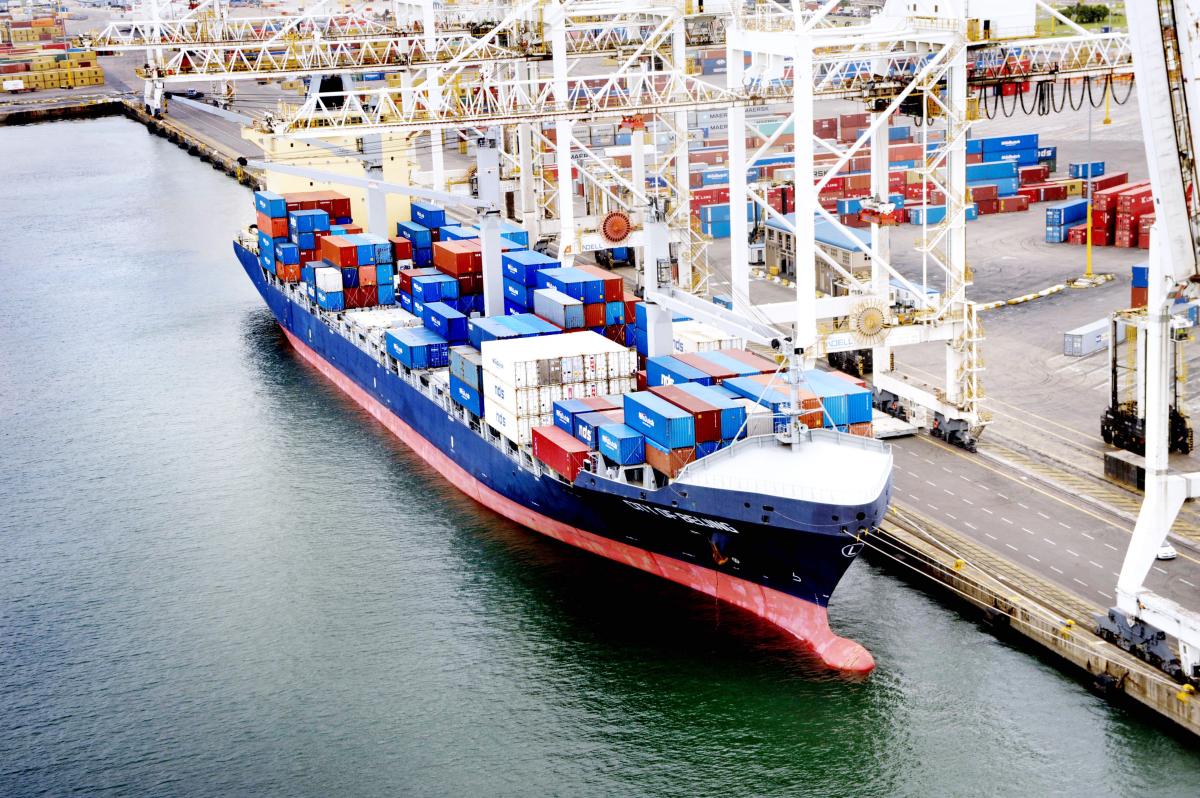
Programmes to modernise harbours
The Department of Public Works will invest approximately R100 million this year on critical capital and maintenance programmes to modernise harbours. The programmes will also continue generating revenue from letting state-owned harbours and coastline properties, which will benefit black-owned SMMEs.
Information and communications technology (ICT)
Government will also continue to pursue policies that seek to broaden the participation of black people and SMMEs, including those owned by women and the youth, in the ICT sector.
The lowering of the cost of data is uppermost in policies and plans of government.
The Department of Public Works will invest approximately R100 million this year on critical capital and maintenance programmes to modernise harbours.
“The Year of Oliver Reginald Tambo: Unity in Action Together Moving South Africa Forward.”
Jobs: Health, March 2017
Jobs: Health, March 2017 Estelle GreeffChief Financial Officer
Ref No: NDOH 15/2017
Chief Directorate: Pharmaceutical Trade and Product Regulation. Directorate: South African Health Products Regulatory Authority (SAHPRA).
Salary: An all inclusive remuneration package of R1 068, 564 per annum [basic salary consists of 70% of total package, the State’s contribution to the Government Employee’s Pension Fund (13% of basic salary) and a flexible portion]. The flexible portion of the package can be structured according to Senior Management Service guidelines.
Centre: Pretoria
Enquiries: Dr T Pillay, Tel: 012 395 8503
Requirements: *A Postgraduate qualification in Financial Management or relevant NQF level 7 degree with completed articles *A professional registration as a Chartered Accountant is strongly recommended *A minimum of ten (10) years experience in financial management at senior managerial level *Comprehensive knowledge and understanding of the Public Finance Management Act (PFMA)/GRAP and all relevant legislations including proven experience *Experience in supply chain management within a trading entity *Ability to implement internal systems and controls to ensure sound financial management, and other resource management practices *Skilled in MS office, Pastel financial systems, VIP Payroll and HR system and Internet *Knowledge of Job Evaluation and Organisational Development principles and procedures *Good leadership and management skills *Good track record in preparation and management of strategic plans, business plans and budgeting *Good communication (verbal and written), strategic and business planning, analytical, change management, organisational awareness, assertiveness, ethical behaviour and financial, cost and management accounting skills *Problem solving and conflict management skills *A driver’s licence.
Duties:*Provide strategic leadership with regards to financial management *Provide strategic direction and leadership to the cluster and ensure focus on strategic imperatives from a financial perspective *Provide sound financial management , advice and support *Ensure the execution of all duties of the CFO implicit and implied in the PFMA, relate to reporting, budgetary control, transference of assets and liabilities, and other financial matters *Oversee the planning and budgeting process *Provide inputs into the formulation of the medium term objectives, policies and strategies in support of the strategic and operational plans of the entity *Ensure that all reporting requirements are met *monitor the submission of monthly reports, detailing the actual and projected revenue and expenditure of SAHPRA/MCC *Ensure an effective risk management system *Undertake a risk assessment and implement and maintain an effective risk management strategy *Ensure resources are managed effectively and performance measured *Effective, efficient and economical use of financial and other resources *Prevent unauthorised, irregular and fruitless and wasteful expenditure *Manage and mentor staff reporting to the CFO and administer their performance management system.
Director: Human Resources Management - SAHPRA
Ref No: NDOH 14/2017
Chief Directorate: Pharmaceutical Trade and Product Regulation. Directorate: Human Resources Management
Salary: An all inclusive remuneration package of R898 743 per annum [basic salary consists of 70% of total package, the State’s contribution to the Government Employee’s Pension Fund (13% of basic salary) and a flexible portion]. The flexible portion of the package can be structured according to Senior Management Service guidelines.
Centre: Pretoria
Enquiries: Dr J Gouws, Tel: 012 395 8003/8032
Requirements: *A Bachelor’s Degree or equivalent NQF level 7 qualification in Human Resources Management *Registration as Chartered or Master Human Resources Practitioner with the South African Board for People Practice will be an advantage *A minimum of five (5) years experience in a Human Resource Management or related environment at middle/senior level *Extensive understanding of and experience in Human Resource Administration *Knowledge and understanding of the Public Finance Management Act (PFMA) and Treasury Regulation, Labour Relations Act, 1995 (LRA), White Paper on Transformation of the Public Service Act and Batho Pele, Public Service Regulations, Basic Conditions of Employment Act, Public Service Act, Employment Equity Act and Human Resources Systems *Good co-ordination and leadership, people management, communication, problem solving, statistical analysis, budgeting, time management, strategic planning, HR policy and procedure, diversity management, project and financial management, planning and organisation skills *A driver’s licence.
Duties: *Develop and manage the implementation of HR strategy *Review the annual business strategy and develop an HR strategy that supports achievement of the business strategy *Provide a platform for sound employee relations *Ensure that departmental practices are legislatively correct and employee sensitive *Provide a progressive and optimised learning environment within the department in developing, managing and monitoring of the departmental training and development strategy *Ensure overall departmental compliances with human resources legislation framework, policies and sound human resources practices *Manage the implementation of effective protocols for the organisation *Manage the administration of service benefits/rewards and payroll matters *Manage leave, long service recognition and PILIR *Ensure effective and efficient recruitment, selection, appointment and retention strategy are in place *Manage the implementation of HR policies and procedures with all organisational staff *Recruit and appoint the organisation staff in line with the HR plan *Ensure the management of organisational development and job evaluation support services *Ensure the work-study investigations is conducted *manage the development of organisational structure and post establishment *Manage the development of job description, grading of positions are in line with the organisational development prescripts *Management of resources *Conduct research on labour relations and planning on health sector *Develop the annual HR budget in line with the overall business strategy and the HR strategy *Manage risk, audit queries within the area of work *Develop and implement risk management plan *Implement risk strategy *Monitor and adjust plan for new risks *Respond to audit queries.
Director: Information Communication Technology
(Ref No: NDOH 17/2017)
Salary: An all inclusive remuneration package of R898 743 per annum [basic salary consists of 70% of total package, the State’s contribution to the Government Employee’s Pension Fund (13% of basic salary) and a flexible portion]. The flexible portion of the package can be structured according to Senior Management Service Guidelines.
Centre: South African Health Products Regulatory Authority (SAHPRA).
Enquiries: Dr J Gouws Tel: 012 395 8003/8032
Requirements: *A four year Bachelor’s Degree or equivalent NQF 7 qualification in Computer Science or information Technology related qualification *At least five (5) years experience at middle/senior managerial level *Experience in social statistics, databases and in full scope IT service management is required *Knowledge of systems architecture, database systems, software, IT support cloud hosting approaches and requirements *Knowledge of the Public Finance Management Act and related Regulations *IT hardware and software, system and network setup and maintenance, database development and management skills *Good communication (verbal and written), statistical, budgeting, people management, problem solving, time management, strategic planning, leadership, organising, co-ordination and diversity management skills *A valid driver’s licence.
Key Performance: Develop and manage the implementation of Information Communication Technology (ICT) policies and procedures. Draft ICT policies in line with good practice and manage the communication of ICT policies and procedures to all users. Manage ICT support provision to system users. Manage service level agreements with providers of outsourced IT services in line with approved IT strategy and budget Develop and manage ICT budget . Monitor and manage spend of the budget in line with the business requirements. Report on progress and performance against budget. Manage human resources/staff. Manage the performance of all staff by developing performance contracts and providing staff with regular feedback on their performance against the defined expectation. Management of risk and audit queries.
Closing date: 13 March 2017
Time:12:00 Mid-Day
Applications: The Director-General, National Department of Health, Private Bag X828, Pretoria. 0001. Hand delivered applications may be submitted at Reception (Brown application Box), Civitas Building, corner of Thabo Sehume (formerly known as Andries) and Struben streets. Pretoria.
For attention: Ms N Sombinge
Note: All short-listed candidates for SMS posts will be subjected to a technical exercise that intends to test relevant technical elements of the job, the logistics of which will be communicated by the Department. Following the interview and technical exercise, the selection panel will recommend candidates to attend a generic managerial competency assessment (in compliance with the DPSA Directive on the implementation of competency-based assessments). The competency assessment will be testing generic managerial competencies using the mandated DPSA SMS competency assessment tools. Applications should be submitted on form Z83 obtainable from any Public Service Department, and should be accompanied by a CV (previous experience must be comprehensively detailed) and certified copies of qualification certificates (including Senior Certificate/Grade 12 certificate regardless of the qualification requirement indicated in the advert), service certificates, including ID and driver’s licence. (certification should not be older than three months) No faxed or e-mailed applications will be considered. Applications received after the closing date and those that do not comply with the requirements will not be considered. It is the applicant’s responsibility to have foreign qualifications and national certificates (where applicable) evaluated by the South African Qualification Authority (SAQA). The Department reserves the right not to fill the posts. The successful candidate will be subjected to personnel suitability checks and other vetting procedures. Applicants are respectfully informed that correspondence will be limited to short-listed candidates only. If notification of an interview is not received within three (3) months after the closing date, candidates may regard their application as unsuccessful. The Department will not be liable where applicants use incorrect/no reference number(s) on their applications.
Jobs: Justice and Constitutional Development Mar 2018
Jobs: Justice and Constitutional Development Mar 2018 UrsulaHead of the Office of the Director-General (Chief Director: Executive Support and Intergovernmental Relations)
Reference: 18/25/DG
Package: R1 127 334 – R1 347 879 per annum. The successful candidate will be required to sign a performance agreement.
Requirements: An undergraduate qualification (NQF level 7) as recognized by SAQA in legal or equivalent qualification; At least 5 years’ experience at senior managerial level of which 3 years should be in public sector.
Enquiries: Mr M Kekana Tel: (012) 357 8023
Senior Legal Administration Officer (Mr6)
Reference: 18/27/CD
Salary: R420 909 – R1 023 054 per annum. Salary will be in accordance with OSD determination. The successful candidate will be required to sign a performance agreement.
Requirements: An LLB degree or 4 years recognized legal qualification; At least 8 years appropriate post qualification legal experience; Knowledge of the Constitution of the Republic of South Africa, South African Human Rights Acts, the Promotion of Equality and Prevention of Unfair Discrimination Act, 2000. Knowledge of the South African Legal system and legal practices with specific reference to civil litigation relating to the right to equality; Knowledge and experience in office administration; Experience in providing legal support and to raise awareness on the promotion of equality and the usage of Equality Courts; A valid driver’s licence.
Enquiries: Mr. Bheki Sibiya (012) 315 1456
Assistant Director: LGBTI Programme
Reference: 18/19/CD (12 MONTHS CONTRACT)
Salary: R334 545 + 37% = R458 326 in lieu of benefits. The successful candidate wil be required to sign a performance agreement.
Requirements: A Bachelor’s Degree/ National Diploma in Social Science or Equivalent qualification; A minimum of 3 years’ experience in the management of pending hate crime cases within the criminal justice system; Knowledge of the National Intervention Strategy for Lesbian, Gay, Bisexual, Transgender and Intersex (LGBTI) Sector and related matters; Knowledge about the work of the National Task Team on Gender and Sexual Orientation- Based Violence Perpetrated Against LGBTI Persons; Knowledge and understanding of Public Finance Management Act, Research and Human Rights will be an added advantage; A valid driver’s license.
Enquiries: Ms. M Kganyago (012) 315 1844
Closing Date: 05 March 2018
Assistant State Attorney, (Lp3-Lp4) (2 Posts) (Re-Advertisement)
Reference: 18/24/SA
Salary: R265 284 – R759 603. (Salary will be in accordance with OSD determination). The successful candidate will be required to sign a performance agreement.
Requirements: An LLB or 4 year recognized legal qualification; Admission as an Attorney; At least 2 years appropriate post qualification legal/litigation experience; A minimum of 2 years’ experience in conveyancing and notary; Admission as a conveyancer and notary will be an added advantage. A valid driver’s licence.
Enquiries: Mr E Seerane (012) 315 1780
Legal Administration Officer (Mr1 – Mr5)
Reference: 18/26/CD
Salary: R174 606 – R818 301 per annum. (Salary will be in accordance with OSD determination). The successful candidate will be required to sign a performance agreement.
Requirements: An LLB Degree or 4 year recognized legal qualification; Knowledge of Constitution of the Republic of South Africa; South African Human Rights Acts, he Promotion of Equality and Prevention of Unfair Discrimination Act, 2000 the Equality Act, Knowledge of the South African Legal system and legal practices with specific reference to civil litigation relating to the right to equality; Knowledge and experience in office administration; Experience in providing legal support and to raise awareness on the promotion of equality and the usage of Equality Courts; A valid driver’s licence.
Enquiries: Mr. Bheki Sibiya (012) 315 1456
All Other Posts: Closing Date: 16 March 2018
Note: Interested applicants may visit the following website: www.justice. gov.za or www.dpsa.gov.za to view the full job specification of the above positions. Applications must be submitted on Form Z83, obtainable from any Public Service Department or on the internet at www.gov.za. A Z83 form & CV must be accompanied by original certified copies of qualifications, identity document and a driver’s licence where necessary. A SAQA evaluation report must accompany foreign qualifications. Applications that do not comply with the above mentioned requirements will not be considered. All shortlisted candidates for SMS posts will be subjected to a technical and competency assessment. Candidate will complete a financial disclosure form and also be required to undergo a security clearance. The foreigners or dual citizenship holder must provide the Police Clearance certificate from country of origin.
The DOJ&CD is an equal opportunity employer. In the filling of vacant posts the objectives of section 195 (1) (i) of the Constitution of South Africa, 1996 (Act No: 108 of 1996), the Employment Equity imperatives as defined by the Employment Equity Act, 1998 (Act No: 55 of 1998) and relevant Human Resources policies of the Department will be taken into consideration. Reasonable accommodation shall be applied for People with Disabilities including where drivers licence is a requirement. Correspondence will be limited to short-listed candidates only. If you do not hear from us within 3 months of this advertisement, please accept that your application has been unsuccessful. The department reserves the right not to fill these positions. Women and people with disabilities are encouraged to apply and preference will be given to the EE Target.
Jobs: Labour Mar 2017 - 1
Jobs: Labour Mar 2017 - 1 Estelle GreeffAssistant Director: Fleet Management Services
Centre: Provincial Office: Western Cape
Reference number: HR4/4/10/112
Commencing salary: R 311 784 per annum
Enquiries: Ms Z Maimane, Tel: 021 441 8125
Applications: Chief Director Provincial Operations, PO BOX 872, Cape Town, 8000
or hand deliver to 9 Long Street, Cape Town.
For Attention: Sub-directorate: Human Resources Management, East London
Assistant Director: COIDA
Labour Centre: Polokwane
Reference number: HR 4/6/6/69
Commencing salary: R 311 784.00 per annum
Enquiries: Ms C Ledwaba, Tel 015 290 1630
Applications: Chief Director: Provincial Operations: Private Bag X 9368, Polokwane 0700
or hand deliver to 42A Schoeman Street, Polokwane 0700
For attention: Human Resources Operations, Limpopo.
Assistant Director: Labour Relations (Research Monitoring and Evaluation)
Provincial Office: Mmabatho
Reference number: HR4/4/9/224
Commencing salary: R 389 145 per annum
Enquiries: Ms KM Gaolatlhwe Tel 018 387 8100
Applications: Chief Director: Provincial Operations: Private Bag X 2040, Mmabatho, 2735
Or hand deliver at University Drive, Provident House, Mmabatho
For Attention: Sub-directorate: Human Resources Management, Mmabatho
Assistant Director: Property Acquisition and Leasing
Directorate: Fleet and Auxiliary Services, Head Office
Reference number: HR 4/17/03/01 HO
Commencing salary: R 311 784 per annum
Enquiries: Mr J Mojapelo, Tel 012 309 4607
Applications: Chief Director: Human Resources Management: Private Bag X117, Pretoria, 0001
or hand deliver at 215 Francis Baard Street, Pretoria
For Attention: Sub-directorate: Human Resources Operations, Head Office
Director: Corporate Services
Provincial Office: Gauteng
Reference number: HR 4/17/02/77 HO
All-inclusive package: R898 743 per annum
Enquiries: Ms M Bronkhorst, Tel 012 309 4969
Applications: Chief Director: Human Resources Management: Private Bag X117, Pretoria, 0001
or hand deliver at 215 Francis Baard Street
For Attention: Sub-directorate: Human Resources Operations, Head Office
Director: Labour Centre Operations (2 posts)
Provincial Office: Gauteng
Reference number: HR 4/17/02/78 HO
All-inclusive package: R 898 743 per annum
Enquiries: Ms M Bronkhorst, Tel 012 309 4969
Applications: Chief Director: Human Resources Management: Private Bag X117, Pretoria, 0001
or hand deliver at 215 Francis Baard Street, Pretoria
For Attention: Sub-directorate: Human Resources Operations, Head Office
Principal Inspector: Electrical Engineering
Provincial Office: Limpopo
Reference number: HR 4/4/6/23
Commencing salary: R389 145 per annum
Enquiries: Ms T Maluleke, Tel 015 290 1626
Applications: Chief Director: Provincial Operations, Private Bag X9368, Polokwane 0700
or hand deliver at 42a Schoeman Street, Polokwane 0700
For Attention: Human Resources Operations, Limpopo
Specialist: Employment Standards
Provincial Office: Free State
Reference number: HR4/4/8/60
All inclusive: R726 276 per annum
Enquiries: Ms A Mantutle, Tel 051 505 6347
Applications: Chief Director: Provincial Operations, PO Box 522, Bloemfontein, 9300
or hand Deliver at Laboria House, 43 Charlotte Maxeke Street, Bloemfontein
For Attention: Sub-directorate: Human Resources Management, Bloemfontein
Provincial Chief Inspector
Provincial Office: East London
Reference number: HR 4/17/02/07HO
All-inclusive package: R 898 743 per annum
Enquiries: Mr BH Gama, Tel 043 701 3128
Applications: Chief Director: Human Resources Management: Private Bag X117, Pretoria, 0001
Or hand deliver at 215 Francis Baard Street, Pretoria.
For Attention: Sub-directorate: Human Resources Operations, Head Office
Specialist: Employment Standards
Centre: Provincial Office: Free State
Reference No: HR 4/4/8/60
Salary: All inclusive package: R726 276 per annum
Enquiries: Ms A Mantutle, Tel 051 505 6347
Applications: Chief Director: Provincial Operations: PO Box 522, Bloemfontein, 9300
Or hand deliver at Laboria House, 43 Charlotte Maxeke Street, Bloemfontein
Requirements: Three year relevant tertiary qualification in Labour Relations/Human Resources Management/Law. Two (2) years management experience. Three (3) years functional experience Inspection enforcement/Labour relations matters. A valid driver’s license. Knowledge: ● Public Service transformation and management issues ● White Paper on transformation of Public Services ● Public Service Act ● Ability to convert policy into action ● Public Service Regulations and Relevant prescripts ● Departmental policies and procedures ● Corporate governance ● Batho Pele principles. Skills: ● Facilitation ● Planning and Organising ● Computer literacy ● Interpersonal ● Problem solving ● Interviewing ● Presentation ● Innovative ● Analytical ● Research ● Project Management.
Duties: ● Conduct complex inspections on EEA & BCEA ● Manage the implementation of employment standards inspection strategy, policy and procedure ● Develop and monitor the implementation of policy and work plan to ensure peaceful and harmonious employer employee relationship ● Manage and conduct the advocacy and educational programmes directed to internal and external stakeholders ● Manage all the resources of the Sub-Directorate such as Human Resources; Financial Resources; Assets, etc.
Closing date for applications: 20 March 2017 at 16:00
For full details of advertised post visit our website: www.labour.gov.za
Applications must be submitted on form Z83, obtainable from any Public Service Department or on the internet at www.gov.za/documents. The fully completed and signed form Z83 should be accompanied by a recently updated, comprehensive CV as well as recently certified copies of all qualification(s) including a Senior Certificate and ID-document [Driver’s license where applicable]. Non-RSA Citizens/Permanent Resident Permit Holders must attach a copy of their Permanent Residence Permits to their applications. Should you be in possession of a foreign qualification, it must be accompanied by an evaluation certificate from the South African Qualification Authority (SAQA). Applicants who do not comply with the above-mentioned requirements, as well as applications received late, will not be considered. The Department does not accept applications via fax or email. Failure to submit all the requested documents will result in the application not being considered. Correspondence will be limited to short-listed candidates only. If you have not been contacted within eight (8) weeks after the closing date of this advertisement, please accept that your application was unsuccessful. Suitable candidates will be subjected to a personnel suitability check (criminal record, citizenship, credit record checks, qualification verification and employment verification). Where applicable, candidates will be subjected to a skills/knowledge test. All shortlisted candidates for SMS posts will be subjected to a technical competency exercise that intends to test relevant technical elements of the job, the logistics of which be communicated by the Department. Following the interview and technical exercise, the selection panel will recommend candidates to attend generic managerial competencies using the mandated DPSA SMS competency assessment tools. Successful candidates will be appointed on a probation period of 12 months. The Department reserves the right not to make any appointment(s) to the above post. The successful candidate will be expected to sign a performance agreement. The Department of Labour is an equal opportunity affirmative action employer. The employment decision shall be informed by the Employment Equity Plan of the Department. It is the Department’s intention to promote equity (race, gender and disability) through the filling of this post(s) with a candidate whose transfer / promotion / appointment will promote representivity in line with the numerical targets as contained in our Employment Equity Plan.
Jobs: Pan South African Language Board Mar 2017
Jobs: Pan South African Language Board Mar 2017 Estelle GreeffThe Pan South African Language Board (PanSALB) is a statutory body established in terms of Act 59 of 1995 (as amended) for, inter alia, the creation of conditions for the development and the promotion of equal use and enjoyment of all the official South African languages. PanSALB seeks to appoint results-driven, assertive and dedicated individuals to fill the following position.
Administrative Assistant
Remuneration Package: R211 194 Per annum (Additional benefits include housing and medical allowance, 13th Cheque and Provident Fund)
Reference: 01/2017
Location: Head Office (Pretoria)
The purpose of the position: The Administrative Assistant is responsible for secretarial and administrative services for the Office of the CEO in support of the Chief of Staff and Senior Manager: Institutional Performance and Governance. The duties involved include coordination of correspondences in the Office, typing, copying of documents, faxing and processing of reports that come to this office within PanSALB and other PanSALB’ s structures. The incumbent will be required to work within prescribed standards, processes and procedures and need to optimise the work outputs within these.
For more detailed information of the reflected vacant posts you may be interested in, kindly visit our website at: www.pansalb.org
Enquiries: Bongani Mahlangu Tel: (012) 341 9638. Interested applicants are invited to forward their applications (Cover letter and CV ONLY) via email to recruitment@pansalb.org No walk-in applications will be accepted. Whites, Indians and Coloureds are encouraged to apply.
Closing date for applications: 13 March 2017
Land for all
Land for all JoyDuring the State of the Nation Address (SoNA), President Jacob Zuma announced that the state will increase its power to use the Expropriation Act to pursue land reform and land redistribution, in line with the Constitution.
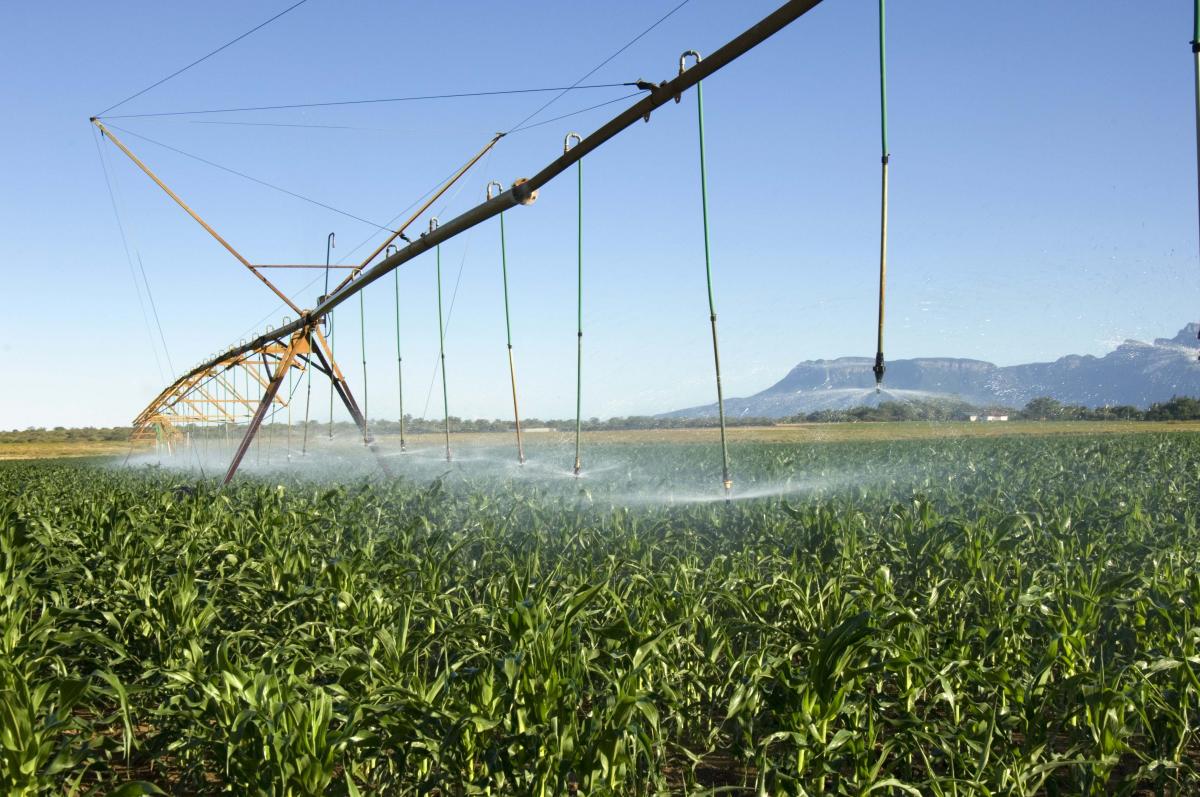 “It will be difficult, if not impossible, to achieve true reconciliation until the land question is resolved.
“It will be difficult, if not impossible, to achieve true reconciliation until the land question is resolved.
“Only eight million hectares of arable land have been transferred to black people, which is only 9.8 percent of the 82 million hectares of arable land in South Africa.
“There has also been a 19 percent decline in households involved in agriculture from 2.9 million in 2011 to 2.3 million households in 2016.”
Since 1994, government has transferred millions of hectares of land back to blacks who were removed from their ancestral land, but some people feel that the pace of redistribution has not been fast enough.
President Zuma said that going forward government will continue to implement other programmes such as the Strengthening of Relatives Rights programme, also known as the 50-50 programme.
In this programme, farm workers join together as a legal entity and together with the farm owner establish a new company as being joint owners.
President Zuma renewed the call for land claimants to accept land instead of financial compensation. Over 90 percent of claims are currently settled through financial compensation which does not help the process at all.
"It perpetuates dispossession. It also undermines economic empowerment,” he said.
The President called on South Africans to unite to move the country forward.
“It is the year of unity in action by all South Africans as we move South Africa forward together,” the President said.
Ministers react to SONA 2017
Ministers react to SONA 2017 lebangWith President Jacob Zuma making bold announcements on radical economic transformation in his State of the Nation Address, Ministers believe the interventions are a call to action for government to make the economy inclusive.
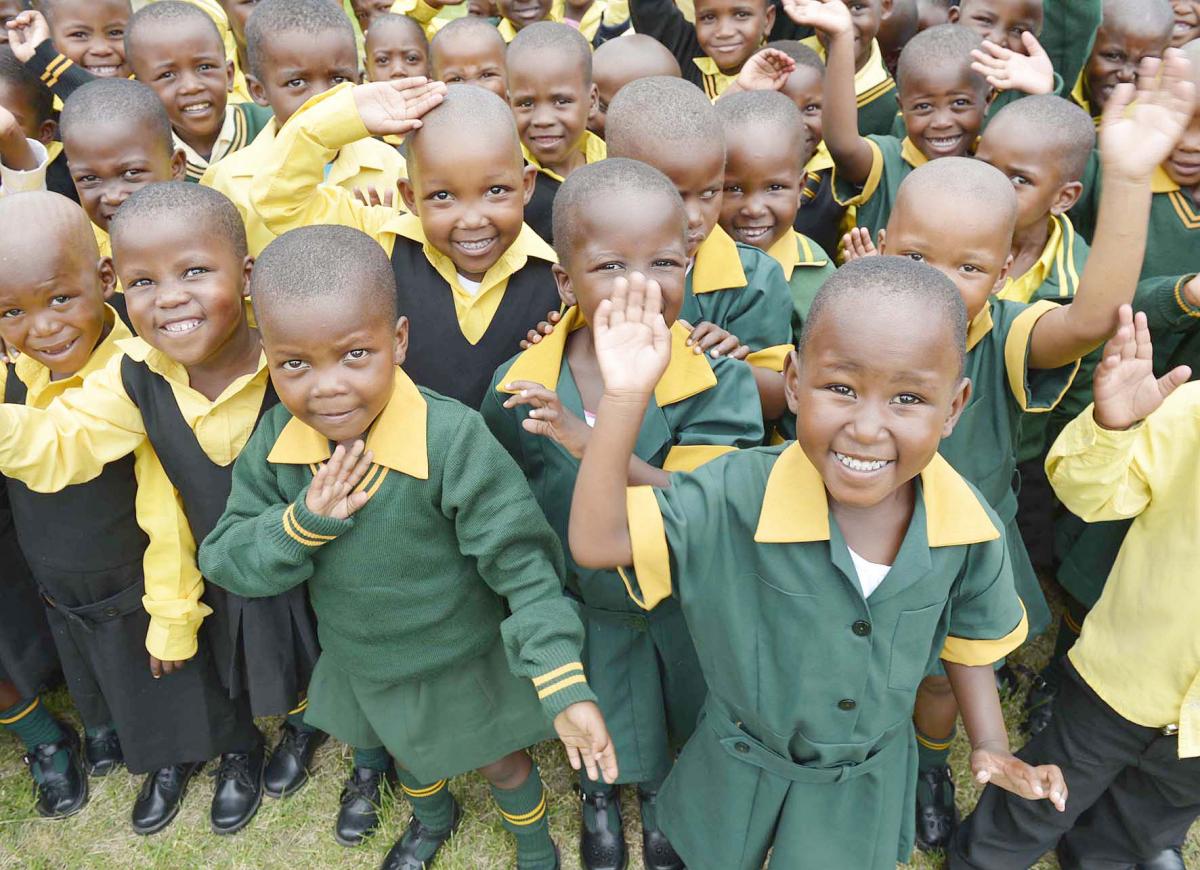 The President announced that government would use different levers of the state – from legislation to budgeting – to step up the pace of radical economic transformation and to ensure that the majority of the population participate in the economy.
The President announced that government would use different levers of the state – from legislation to budgeting – to step up the pace of radical economic transformation and to ensure that the majority of the population participate in the economy.
Water and Sanitation Minister Nomvula Mokonyane said it can no longer be business as usual.
“We must impose quotas and make sure that the 30 percent is now legislated. It is not a negotiable that we must open up the space for those who must come and learn and also invest in skills development so that those who come in also have the acquired skills and are not just shareholders,” said the Minister.
Deputy Minister in the Presidency responsible for Planning, Monitoring and Evaluation Buti Manamela said what he liked about the speech was that it was biased towards young people.
“Firstly, I think this has been the most youth-oriented speech since I first came to Parliament in 2009.
“It focusses on the fact that young people are unemployed, young people don’t have jobs and how will government use the Nine Point Plan to ensure that we create jobs for young people.
“[Radical economic transformation] means ownership and control of the economy, it means black people must have a stake in their economy.”
Basic Education Minister Angie Motshekga said she was glad to hear the President commend the country’s education system for improving in terms of its international competitiveness.
 “We were the most improved system among all the countries that were participating which confirms that our remedial actions are beginning to yield results. Yes we started on a low base, but we are on an upward trajectory so it is very encouraging and exciting.”
“We were the most improved system among all the countries that were participating which confirms that our remedial actions are beginning to yield results. Yes we started on a low base, but we are on an upward trajectory so it is very encouraging and exciting.”
In his speech, the President said that going forward, government will continue to implement other programmes such as the Strengthening of Relatives Rights programme, also known as the 50-50 programme.
In the programme, farmworkers join together into a legal entity with the farm owner and with the help of the National Empowerment Fund a new company is established and the workers and the owner become joint owners.
Minister Gugile Nkwinti said the programme was a tool to achieve radical economic transformation faster, as it uplifts the farm worker into an owner.
New cyber lab for Dunoon learners
New cyber lab for Dunoon learners lebangWhen Human Settlements Deputy Minister Zou Kota-Fredericks arrived at the Dunoon Primary to hand over a new cyber lab, 9 year-old Milani Mthandeki grabbed her new tablet, switched it on and browsed through the content in a matter of seconds.
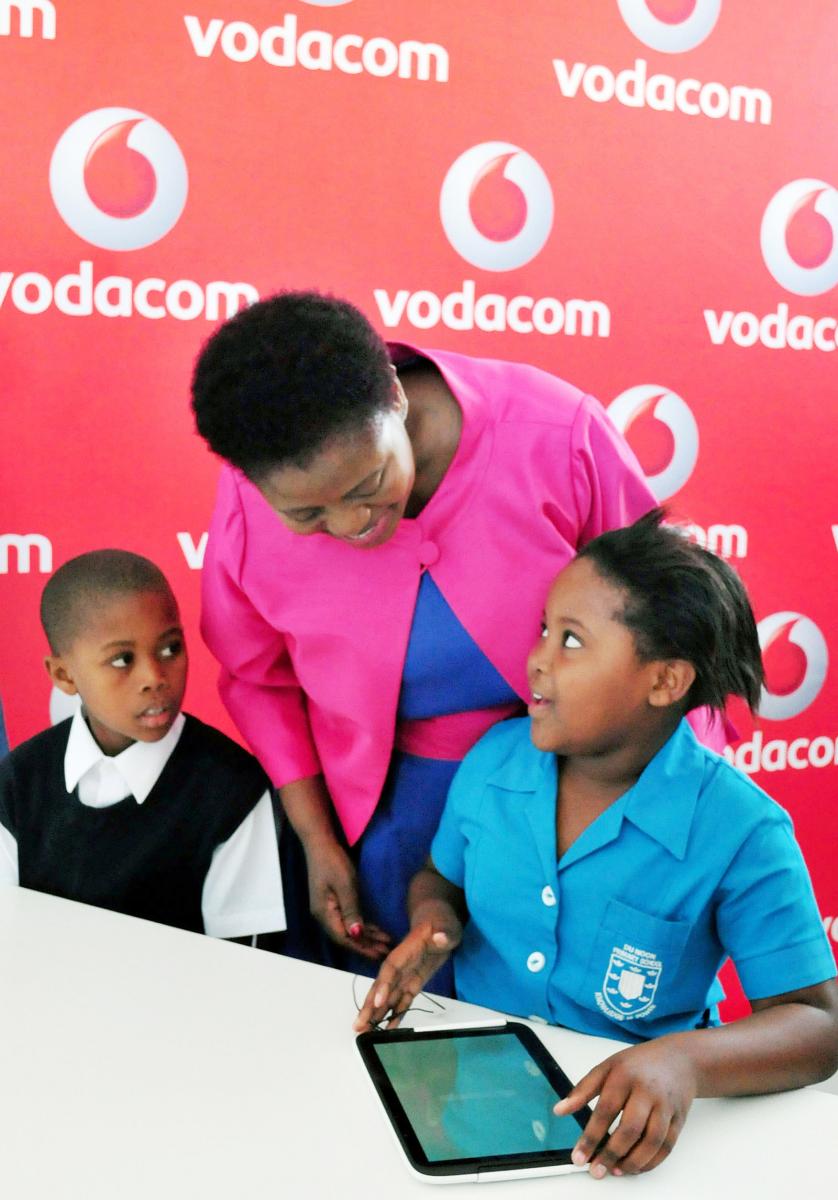 Milani, who is in grade 3, then turned to assist one of her classmates to switch on their tablet and showed them how it works.
Milani, who is in grade 3, then turned to assist one of her classmates to switch on their tablet and showed them how it works.
“I am happy to be receiving this tablet. The first thing I wanted to do when I got it was to go to the internet and also check school work,” she quipped.
Milani said she got her savvy skills because her mother has a tablet and she always plays games on it.
Sponsored by Vodacom, the cyber lab was fully equipped with 26 tablets, including free access to educational sites, tablet charging trolley, laptop, server, configured router, Wi-Fi and installation of the equipment and training.
In an interview after the hand-over of the lab, the Deputy Minister the cyber-lab would add another dimension to learning at the school.
“We are opening the doors of learning, e-learning, to these young people, and it is an investment because they are coming from poor families. It is definitely going to break the cycle of poverty.”
The Deputy Minister said the partnership between government and the private sector was yielding positive results.
“I think this is a very positive input at the beginning of the year. This is really a space to get into between business and government.
“We are excited about this partnership, especially in the environment of Dunoon, which is surrounded by informal settlements. Families are poor but they can do better because they excel in school,” she said.
Bongani Macikama, the principal of the Dunoon Primary Schoool, said the donation by the Vodacom Foundation would improve the quality of learning at the school.
He said the school currently enrols 1 436 learners and that despite socio-economic challenges.
New minimum wage will help the poor
New minimum wage will help the poor Joy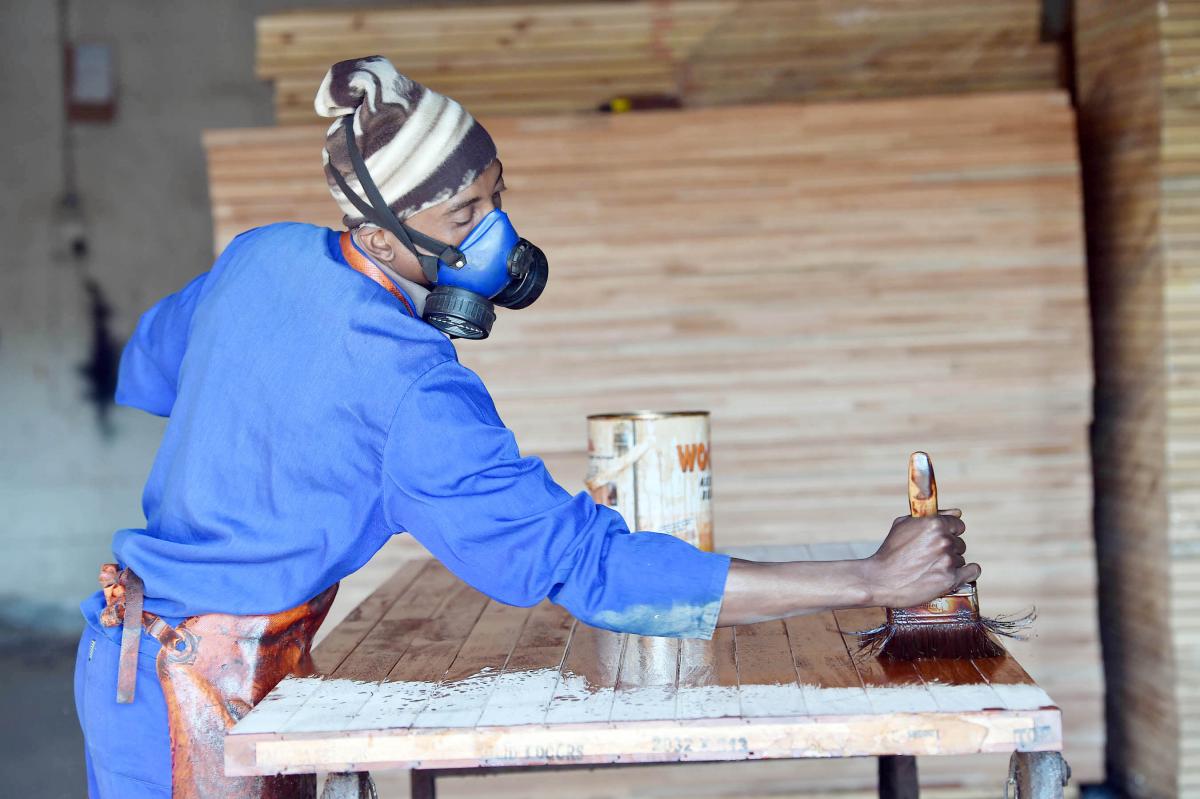 Deputy President Cyril Ramaphosa has announced that the national minimum wage has been set at R20 per hour or R3 500 a month for those who work a 40-hour week.
Deputy President Cyril Ramaphosa has announced that the national minimum wage has been set at R20 per hour or R3 500 a month for those who work a 40-hour week.
Those who work a 45-hour week will have their minimum wage set at R3 900.
The Deputy President said the new minimum wage will come into effect on 1 May 2018.
“The national minimum wage, which is a floor below which no worker will be paid, will significantly improve the lives of millions of low-paid workers and begin to address the challenge of wage inequality in our country.
“At its introduction next year, South Africa will join several countries around the world that have implemented a national minimum wage as an instrument of economic as well as social development,” he said.
The Deputy President said social partners representing organised labour and civic society organisations at the National Economic Development and Labour Council (Nedlac) signed agreements on measures to strengthen labour stability as well as to deepen the process of collective bargaining, as well as the modalities to introduce the national minimum wage.
The agreements represent a significant advance “in our efforts as a nation and as people to address the challenges of wage inequality in our country as well as stabilising the labour market”.
He said the agreements also power up the momentum to tackle inequality and poverty.
The agreements restore the dignity of all poor South Africans.
The Deputy President said 6.6 million workers were surviving on a living wage of under R3 500 and that there is a need to begin a journey of improving the income of low-paid workers.
“What we arrived at in terms of the national minimum wage is not a living wage. This forms a firm foundation of moving our country towards a living wage. It is a start. These agreements are a result of nearly two years of deliberations.
“They are a response by the call that was made by President Zuma”.
He said companies that cannot afford the national minimum wage can apply for exemption from government.
The Deputy President also said the minimum wage would be evaluated from time to time to assess its impact on jobs. ![]()
Proteas women qualify for World Cup
Proteas women qualify for World Cup lebangAfter a convincing win over Sri Lanka the Momentum Proteas have qualified for the 2017 ICC Women’s World Cup to be held in the United Kingdom in June and July this year.
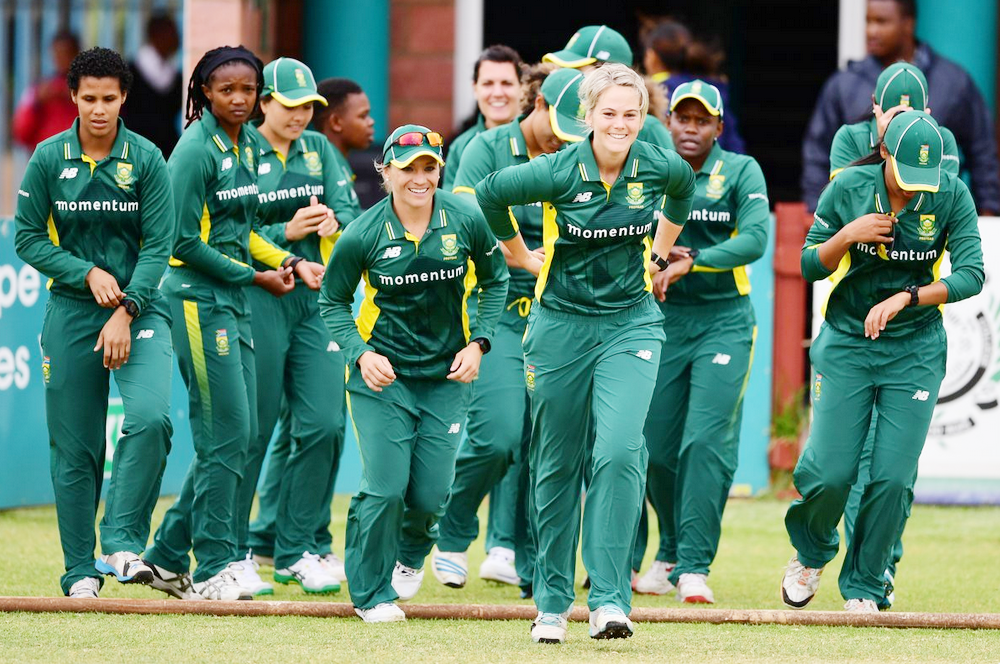 South Africa and India are the first to qualify and will join Australia, England, New Zealand and West Indies in women’s cricket’s biggest stage.
South Africa and India are the first to qualify and will join Australia, England, New Zealand and West Indies in women’s cricket’s biggest stage.
Sune Luus and Laura Wolvaardt each hit unbeaten 50s to claim victory for their side after the bowlers restricted the opposition, who elected to bat first, to 142/9 at P. Sara Oval in Colombo recently.
Lizelle Lee’s was the only wicket to fall when she fell to Eshani Kaushalya for 35 off 29 deliveries in the 28th over. She and Wolvaardt (50 off 118 balls) had already set up the innings with a 46-run opening stand. Player of the Match, Luus (50 off 70 balls) then went on to put on 99 runs with Wolvaardt for a clinical victory.
Earlier, Luus took three wickets for 40 in her 10 overs, while captain, Dane van Niekerk chipped in with 2/14. Valuable bowling contributions by Moseline Daniels (1/16 in 6 overs), Ayabonga Khaka (1/22 in 9 overs) and Marizanne Kapp (1/26 in 8 overs) saw them limit the hosts to a manageable score, laying the foundation for the batters to reach the required target with 83 balls to spare.
Sri Lanka’s opener, Nipuni Hansika top scored with 48 from 96.
Source: Cricket South Africa
Relations with Africa and the world
Relations with Africa and the world lebangStarting from August 2017, South Africa will chair the Southern African Development Community (SADC) and use its tenure to fast-track the implementation of the SADC Industrial Strategy.
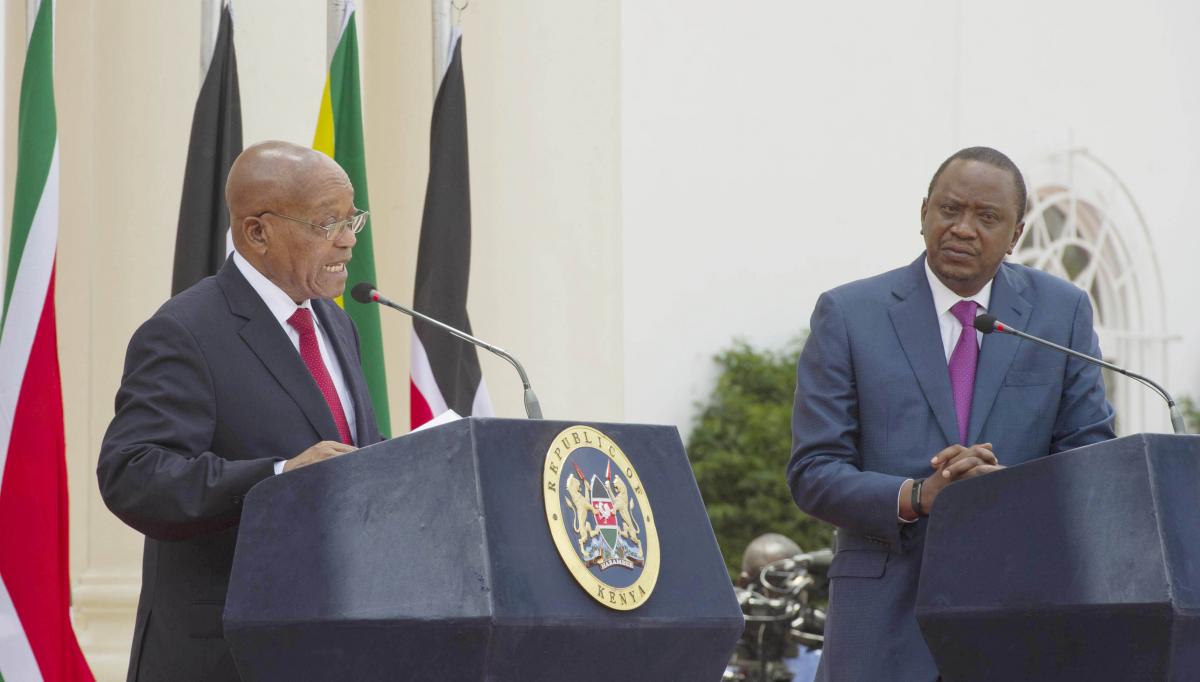 The country is accelerating the integration agenda through the implementation of the SADC-Common Market for Eastern and Southern Africa-East African Community Free Trade Area.
The country is accelerating the integration agenda through the implementation of the SADC-Common Market for Eastern and Southern Africa-East African Community Free Trade Area.
South Africa will continue with its involvement in mediation efforts, peacekeeping operations, and peacemaking initiatives in Lesotho, Democratic Republic of Congo, Burundi, Mozambique, South Sudan, Somalia and Libya.
Trade with traditional partners in the West remains a significant contributor to the economy. The country will continue to partner with the United States and work together on issues of mutual interest such as the full renewal of African Growth and Opportunity Act.
The country values its relationship with the PRC. China is one of South Africa’s most important and key strategic partners. The PRC is recognised ‘as the sole government and authority representing the whole of China’.
South Africa has reiterated its position and commitment to the ‘One China Policy’ and considers Taiwan as an integral part of the PRC.
At continental partnership level, the Joint Africa-European Union (EU) Strategy remains an important long-term framework for continued cooperation.
The Economic Partnership Agreement with the EU came into force in September 2016, thus providing new market access opportunities for South African products.
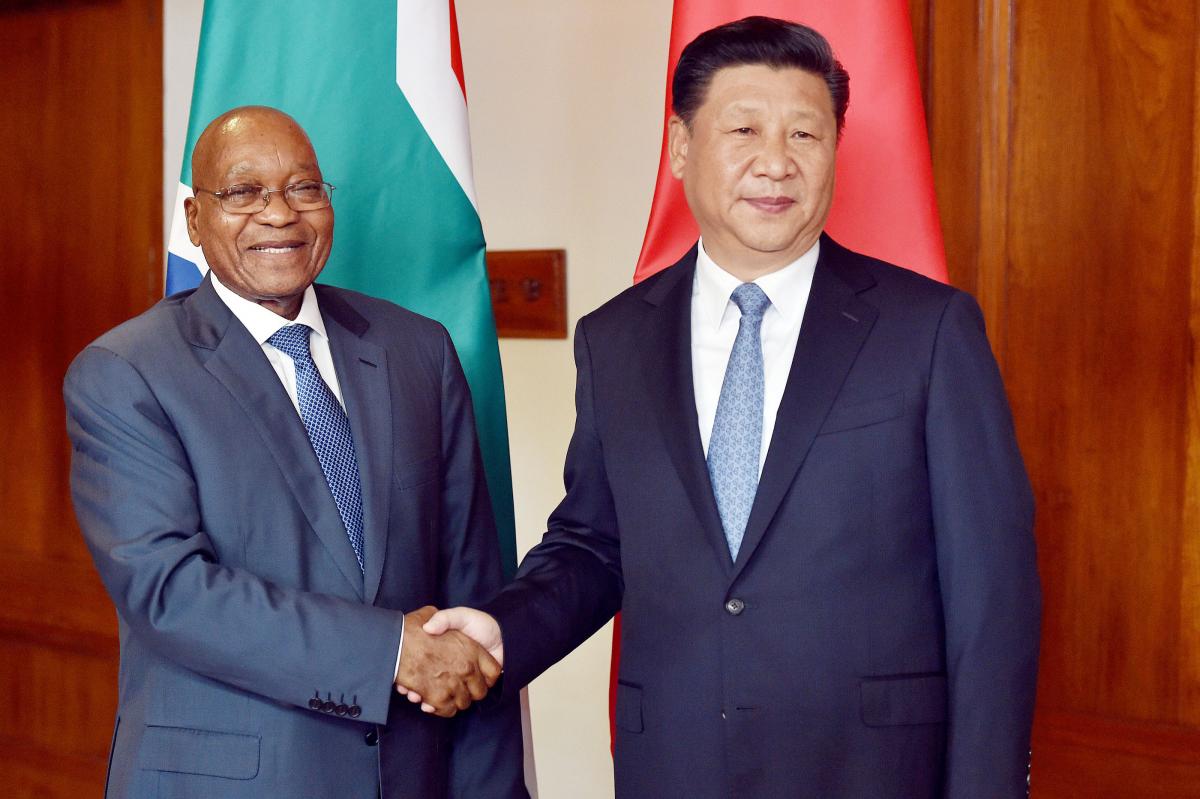 Almost all South African products, about 99 percent, will have preferential market access in the EU.
Almost all South African products, about 99 percent, will have preferential market access in the EU.
About 96 percent of the products will enter the EU market without being subjected to customs duties or quantitative restrictions.
The Southern African Customs Union’s Mercosur Preferential Trade Agreement has also entered into force, providing preferential access to over 1 000 tariff lines. This is an agreement that promotes south-south trade.
South Africa’s cooperative partnerships with other regions are bearing fruit. The BRICS New Development Bank has recorded encouraging progress.
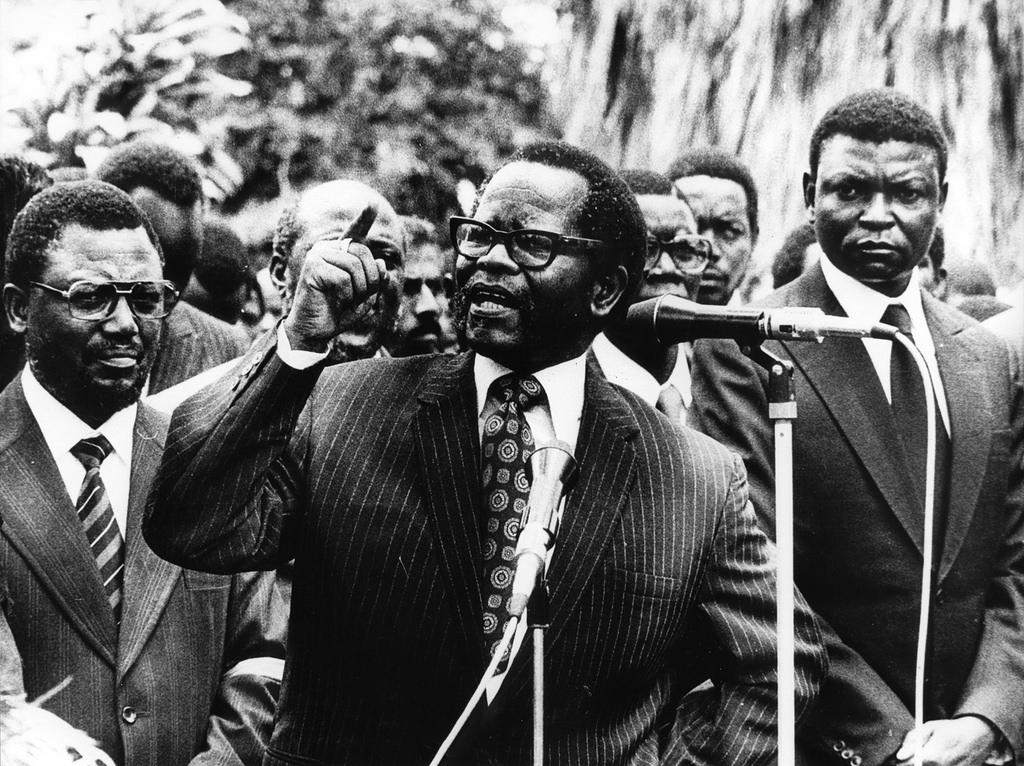 Government welcomes the Goa Brazil, Russia, India, China and South Africa (BRICS) Heads of State and government's decision to establish the BRICS Rating Agency to assist one another in assessing economic paths.
Government welcomes the Goa Brazil, Russia, India, China and South Africa (BRICS) Heads of State and government's decision to establish the BRICS Rating Agency to assist one another in assessing economic paths.
South Africa is also pleased with agreements with its BRICS partners in the field of agriculture. It will implement off-take agreements on the export of pulses, mangos and pork to India.
The country will also export 20 000 tons of beef to China per year for a period of 10 years. It will continue to pursue the reform of the international system because the current configuration undermines the ability of developing countries to contribute and benefit meaningfully.
Occupation of Palestine
This year marks the 50th anniversary of the occupation of Palestine. The expansion of Israeli settlements undermines global efforts aimed at realising the two-state solution and the Oslo accord. Government has reiterated its support for the Palestinian course.
Western Sahara issue
South Africa also hopes that the readmission of Morocco to the African Union (AU) should serve as a catalyst to resolve the Western Sahara issue.
SS Mendi
The Armed Forces Day on 21 February 2017 will be used to mark the centenary commemorations of the tragic sinking of the SS Mendi, which left 646 soldiers dead in 1917.
International Albinism Awareness Day
The Constitution of the Republic of South Africa of 1996 accords equal rights and dignity to all South Africans. The United Nations proclaimed 13 June as International Albinism Awareness Day, which will be used to raise awareness and eliminate the discrimination or harm that compatriots with albinism are subjected to in some areas.
People with albinism are also human beings and abusive behaviour against them should stop.
The myth about albinism should also come to an end.
“Working together as fellow South Africans, we have it within our power to transform this country into the land of plenty for all, where the nightmare of apartheid will just be a faint memory of the past.” – OR Tambo
The full speech is accessible on www.gov.za and www.thepresidency.gov.za
“The Year of Oliver Reginald Tambo: Unity in Action Together Moving South Africa Forward.”
Reversing apartheid legacy
Reversing apartheid legacy andileHighlights of the State of the Nation Address
Only eight million hectares (ha) of arable land have been transferred to black people, which is only 9.8 percent of the 82 million ha of arable land in South Africa.
There has also been a 19 percent decline in households involved in agriculture from 2.9 million in 2011 to 2.3 million households in 2016.
Government will use the Expropriation Act, 1975 (Act 63 of 1975) to pursue land reform and land redistribution, in line with the Constitution.
The reopening of land claims is also still on hold because the Restitution of Land Rights Amendment Act, 2014 (Act 15 of 2014) was declared invalid by the Constitutional Court.
The Constitutional Court found that the public consultation process facilitated by the National Council of Provinces and some provincial legislatures, did not meet the standard set in the Constitution.
Government will continue to implement other programmes such as the Strengthening the Relative Rights of People Working the Land programme, also known as the 50-50 programme.
By February 2017,13 proposals had been approved, benefiting 921 farm dweller households at a value of R631 million.
Government has appealed to land claimants to accept land instead of financial compensation. Over 90 percent of claims are currently settled through financial compensation, which perpetuates dispossession and also undermines economic empowerment. Government has committed itself to support black smallholder farmers and will implement a commercialisation support programme for 450 of them. Women have been encouraged to consider farming. The 2016 Female Farmer of the Year was Ms Vanecia Janse from the Koukamma Municipality in the Eastern Cape. 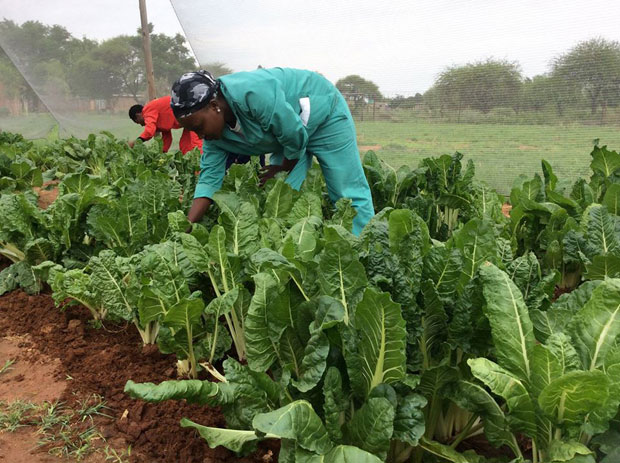
Drought relief
To mitigate the drought, government has provided R2.5 billion for livestock feed, water infrastructure, drilling, equipping and refurbishment of boreholes, auction sales and other interventions.
Furthermore, the Industrial Development Corporation and the Land Bank have provided funding of about R500 million to distressed farmers to manage their credit facilities and support with soft loans.
Women emancipation
Government will continue to mainstream the empowerment of women in all government programmes and prioritise women’s access to economic opportunities and, in particular, to business financing and credit.
Funding higher education
Accumulated debt and fast-rising fees have made it harder and harder for students from less-privileged households to enter and stay within the education system until they complete their studies.
In addition to taking over the responsibility to pay the fee increase for the 2016 academic year, government has settled all debt owed by the National Student Financial Aid Scheme (NSFAS) students and extended the coverage to larger numbers of students than ever before.
It has announced additional measures aimed at making higher education accessible to more students from working-class families.
Government has provided funds to ensure that no student whose combined family income is up to R600 000 per year will face fee increases at universities and Technical and Vocational Education and Training (TVET) colleges in 2017.
All students who qualify for NSFAS loans, and who have been accepted by universities and TVET colleges, will be funded. The university debt of NSFAS qualifying students for 2013, 2014 and 2015 academic years has been addressed. Government has reprioritised R32 billion within government baselines to support higher education.
Government has initiated processes to look into the issue of NSFAS students who study at some universities that charge fees that are higher than the subsidy that NSFAS provides, and thus end up accumulating debt.
government has provided R2.5 billion for livestock feed, water infrastructure, drilling, equipping and refurbishment of boreholes, auction sales and other interventions.
Mining
The Mining Charter, which seeks to recognise the internationally accepted right of the state to exercise sovereignty over all the mineral and petroleum resources within South Africa, is currently being reviewed.
It is also aimed at helping the country to deracialise the ownership of the mining industry to ensure its sustainability.
Government will continue pursuing direct state involvement in mining. The Mining Company of South Africa Bill will be presented to Cabinet and Parliament during the year. 
The Minerals and Petroleum Resources Development Amendment Bill was sent back to Parliament so that issues relating to the public consultation process undertaken by provincial legislatures can be addressed.
Government continues to work with other stakeholders to combat illegal mining to save lives and to prevent the trafficking of precious metals and diamonds. It also continues to place great emphasis on the health and safety of mineworkers, which is crucial to the sustainability of the mining sector.
Fighting crime
Police will increase visible policing, building on the successful pattern of deployments used during the Safer Festive Season Campaign.
Police will also use certain specialised capabilities, such as the tactical response teams and national intervention units, to assist in addressing problematic high-crime areas.
Other measures to fight crime nationally will include the establishment of specialised units, focusing on drug-related crime, taxi violence and firearms and the enhanced utilisation of investigative aids such as forensic leads.
The police will also enhance the utilisation of the DNA database in the identification of suspects. 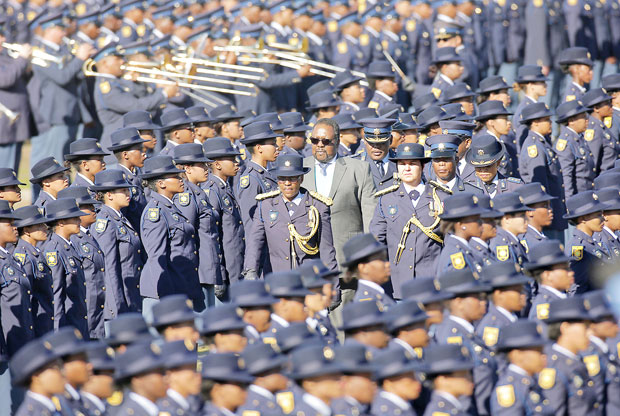
One of the strategies of fighting crime is to ensure that those who are released from prison do not commit crime again.
Justice and correctional services
The Department of Correctional Services continues to turn prisons into correctional centres and as a result, compliance levels with parole and probation conditions have improved to reach a historic mark of 98%. The country has also made good progress in reducing the numbers of children in correctional centres.
The High Court Division in Limpopo was opened in November 2016 and the Mpumalanga High Court will be completed in 2017, realising the goal of a high court in every province.
Fighting corruption
The Asset Forfeiture Unit completed 389 forfeiture cases to the value of R349 million and obtained 326 freezing orders to the value of R779 million.
A total of R13 million was recovered in cases where government officials were involved in corruption and other related offences in 2016.
SA, Angola boost cooperation in mining
SA, Angola boost cooperation in mining lebangSouth Africa and Angola have committed to strengthen cooperation in the areas of mining and upstream petroleum, says Mineral Resources Minister Mosebenzi Zwane.
The commitment was made during a meeting with Minister Zwane and his Angolan counterpart, Minister of Geology and Mining, Francisco Queiroz, on the side-lines of the Investing in African Mining Indaba recently.
Minister Zwane said the two countries will collaborate on matters of mutual interest, including in the areas of policy, geological mapping, exploration and policy.
“We must also action the agreements in the African Mining Vision, so that our objective of a prosperous Africa can be realised," Minister Zwane.
Teams from both countries will meet in the next two weeks to begin implementing the bilateral commitments.
SA, Iran grow tourism relations
SA, Iran grow tourism relations lebangSouth Africa and Iran have held bilateral discussions on growing tourism relations between the two countries.
Tourism Minister Derek Hanekom recently met with his counterpart Vice President Dr Zahra Ahmadipour, Head of the Iranian Cultural, Heritage, Handicrafts and Tourism Organisation in Iran.
Minister Hanekom also engaged members of the tourism trade to discuss ways of increasing tourist arrivals from Iran to South Africa.
“We have a good base to work from and grow tourism between our countries. We have been very warmly received in Iran, and the government and tourism trade has responded very positively to our effort to promote further tourism ties.
Iran is amongst South Africa’s top three source markets for inbound tourists from the Middle East. More than 4 000 Iranian tourists visited South Africa between January and November 2016.
South Africa and Iran already have a strategic partnership that will benefit the people of both countries.
South Africa is for all of us
South Africa is for all of us JoyOn 21 March, our nation will again observe Human Rights Day – a day on which we normally focus on the many rights enshrined in our Constitution; rights that did not exist when the apartheid regime perpetrated the Sharpeville Massacre of anti-pass law protesters on March 21, 1960.
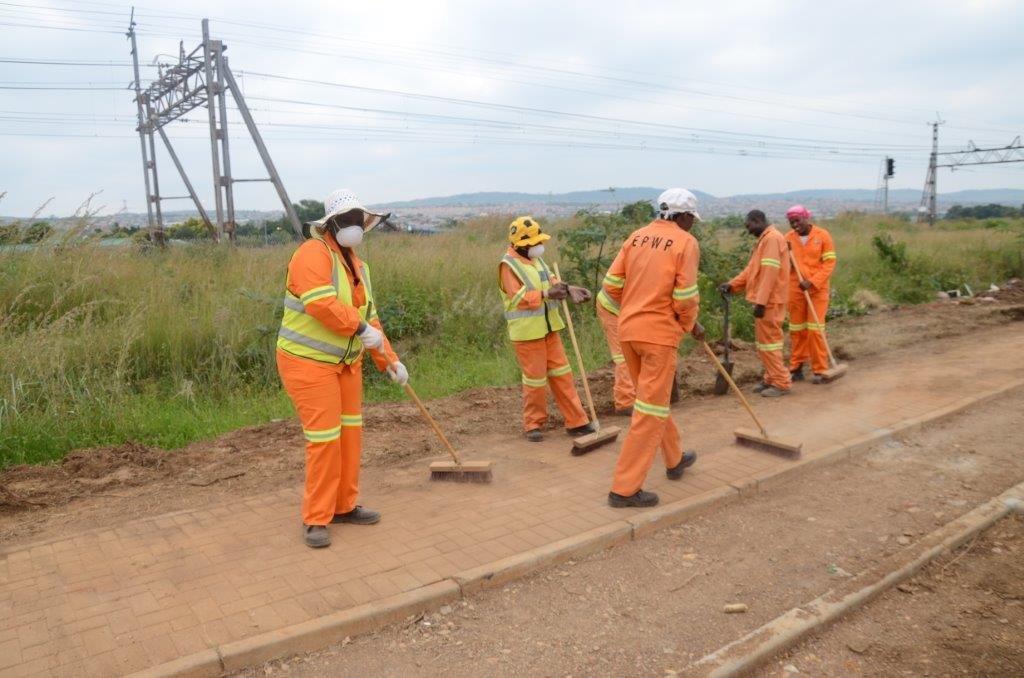 This year we will mark the Human Rights Day commemoration at Ginsberg in King Williamstown in the Eastern Cape, in honour of Mr Steve Biko who paid the supreme price for freedom when he was murdered by the apartheid state in 1977.
This year we will mark the Human Rights Day commemoration at Ginsberg in King Williamstown in the Eastern Cape, in honour of Mr Steve Biko who paid the supreme price for freedom when he was murdered by the apartheid state in 1977.
Fifty-seven years after Sharpeville and 40 years after the death of Steve Biko, government has declared that the political freedom gained in 1994 must be accompanied by economic freedom for the black majority in this country, and the Africans in particular. We are not going to be apologetic about that.
The rights set out in our Constitution will be hollow as long as large numbers of South Africans – and Africans in particular – are unskilled or unemployed, or unable to access the finances and support required to launch businesses.
Radical socio-economic transformation will help us to grow the economy in a way that will include all South Africans and will ensure true reconciliation and prosperity.
The fact that white households earn five times more than black households cannot guarantee a sustainable and prosperous future for all.
The ownership figures of companies at the Johannesburg Stock Exchange that show that the economy remains concentrated in the hands of white South Africans, should worry all of us.
As we set out this year to turn our vision of radical socio-economic transformation into action, we must declare that affirmative action and black economic empowerment do not demonstrate hatred of white people.
They are aimed at ensuring the achievement of true reconciliation in the country based on the Constitution of the Republic.
The Constitution enjoins us to heal the divisions of the past and to establish a society based on democratic values, social justice and fundamental human rights.
Radical economic transformation, of which affirmative action and BEE form a part, are part of healing the divisions of the past.
White compatriots will be part of this process as it will assist us to achieve a truly united, non-racial and prosperous society.
All South Africans should therefore join government and one another in helping us move towards an economy that will create more opportunity for more people and overcome the divisions of the past. These divisions used to determine who would live where, who would be educated where, who would do which jobs, who would earn which income, and who would live longer, healthier and safer lives than others.
In 2017, government’s policies on small businesses and black economic empowerment will prioritise the development of entrepreneurs who play a meaningful role in the productive sectors of the economy.
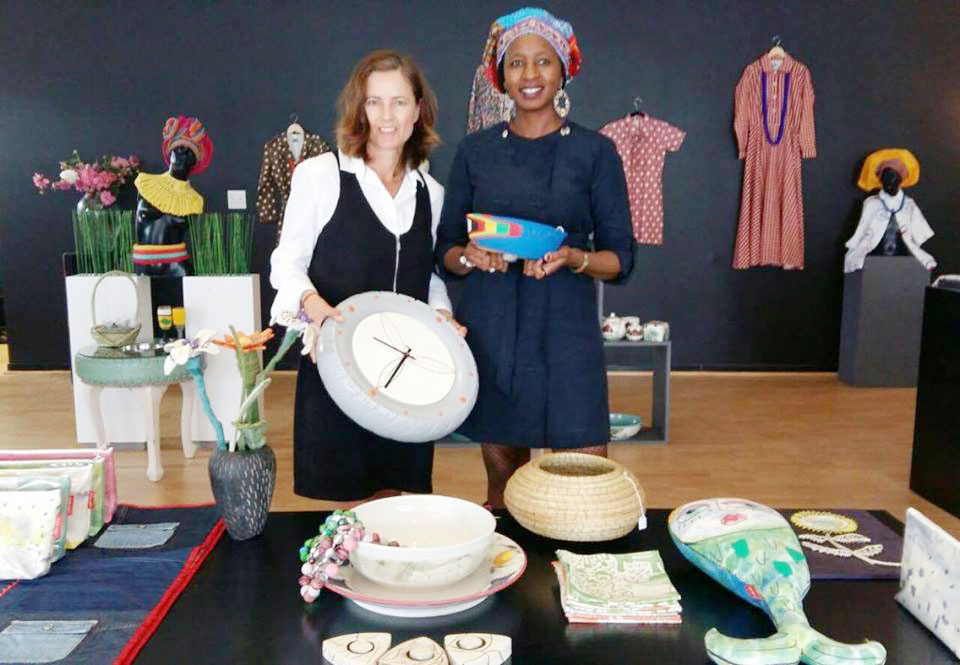 When we speak of black industrialists, we want to see factories owned by black people in the manufacturing sector.
When we speak of black industrialists, we want to see factories owned by black people in the manufacturing sector.
The Department of Small Business Development will work with state owned companies and enterprises as well as government departments, to ensure that 30 percent of their contracts or tenders are subcontracted to small businesses.
While we prepare the ground for greater meaningful participation by black South Africans in our economy, government will continue its own effort to create opportunities for South Africans who need them the most at a time when our economy is not creating jobs.
Government runs effective poverty alleviation programmes such as the Expanded Public Works Programme (EPWP). In addition, social grants now reach close to 17 million people, mainly older persons and children. Many families would not be able to put food on the table if it were not for social grants.
The EPWP has since 2014, created more than two million work opportunities towards the attainment of the target of six million work opportunities by the end of March 2019. Of the work opportunities created, more than a million have been taken up by the youth.
Just a few weeks ago, leaders of government, organised labour, the community sector and the business community reached an important agreement on a national minimum wage of R20 an hour that will implemented no later than May 2018.
All these measures exist to ensure that no South African is marginalised in the country of their birth and that we build – with visible results and improvements in people’s lives – the non-racial, non-sexist, prosperous South Africa all of us should be a part of and proud of.
Tourism a key job driver
Tourism a key job driver lebangPresident Jacob Zuma says tourism is a key job driver with tourist arrival numbers for 2016 increasing to nine million.
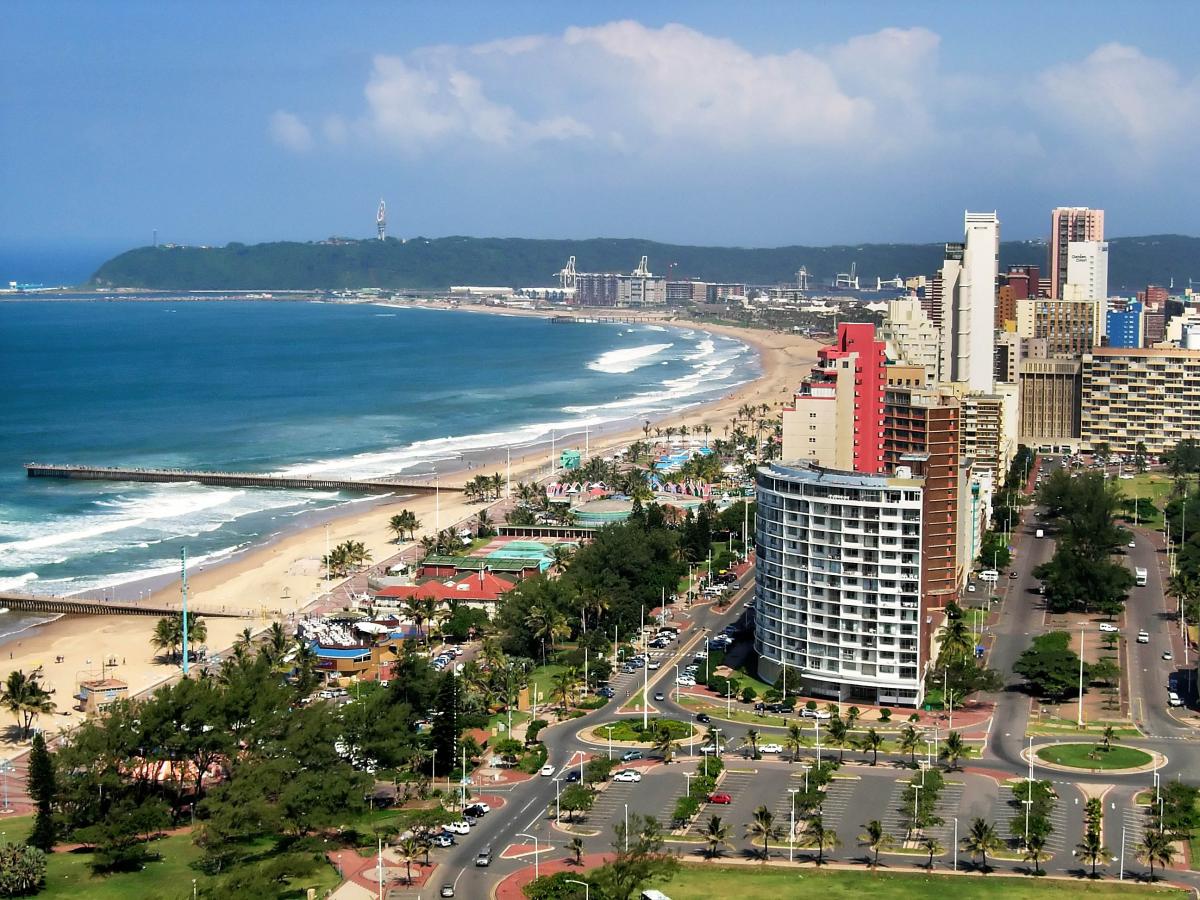 “We are thus pleased that our tourist arrival numbers for the period January to November 2016 increased to nine million, an increase of just over one million arrivals from 2015,” the President said during his State of the Nation Address.
“We are thus pleased that our tourist arrival numbers for the period January to November 2016 increased to nine million, an increase of just over one million arrivals from 2015,” the President said during his State of the Nation Address.
This represents a 13 percent growth in tourist arrivals, the President said.
Briefing media on the latest festive season traveller statistics, earlier this year, Home Affairs Minister Malusi Gigaba said a total of 5 504 022 people travelled across South Africa’s borders between 9 December 2016 and 14 January 2017.
This marks an increase of 200 467 movements, or 3.78 percent, at the ports of entry nationally when compared to the 5 303 555 recorded between 9 December 2015 to 14 January 2016.
“The 2016/17 festive season was marked by increased movement of people and goods across borders for different reasons varying from cross-border employment and business to academic and educational endeavours.
“We also observed a high number of travellers crossing borders for holiday and tourist purposes, which is one of the important priorities for the country,” said the Minister.
Minister Gigaba said South Africa remains an attractive tourist destination.
The top 10 nationalities that arrived in South Africa during the period were from Lesotho, Zimbabwe, Mozambique, Swaziland, Botswana, United Kingdom, United States, Namibia, Germany and Zambia.
The top 10 ports of entry used by travellers between 9 December 2016 and 14 January 2017 were Oliver Tambo International Airport, Beit Bridge, Lebombo, Maseru Bridge, Ficksburg, Cape Town International Airport, Oshoek, Kopfontein, Ramatlabama and Groblers Bridge.
All movements for OR Tambo for the same period reached a total of 977 961, compared to 948 477 during 9 December 2015 to 14 January 2016.
Working on Fire trains pilots
Working on Fire trains pilots lebangThe Working on Fire’s pilot training initiative was launched in 2015. The training draws firefighters from the Working on Fire programme who have matric certificates and have passed English, Mathematics and Physical Science and have a passion for aviation.
When the initiative started it had an intake of two firefighters who went to the Kishugu Aviation Training Organisation in Nelspruit.
One of the pilot participants, 22-year-old Donald Malekuto from Mohale township in Magaliesberg, is training to attain a professional pilot license. ‘‘I wish to become the first qualified pilot from my township. I will not squander this golden opportunity afforded me to train as a pilot,’’ he said.
Donald is not new to aviation and has been trained as a glider pilot in Magaliesberg.
He said he is even more grateful that he is getting comprehensive pilot training free of charge.
‘‘I struggled to complete the glider pilot license due to money issues. I am grateful to the Aviation Training Organisation for the training,” he said.
General Manager for the Working on Fire programme in Gauteng Stephen Boyes said that the initiative is a good one for skills development.
For more information about the Working on Fire programme visit: www.workingonfire.org or E-mail: parapara.makgahlela@wofire.co.za or call: 011 314 0254